|
By Meg Moore 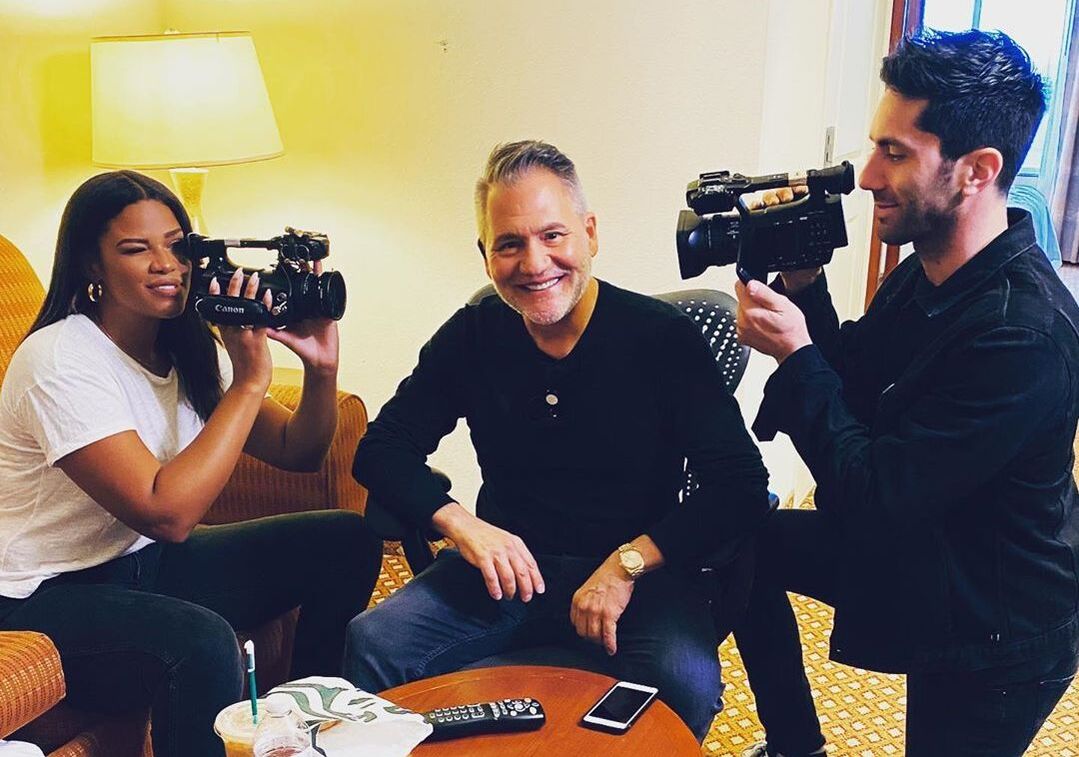 Hosts of MTV's Catfish Nev Schulman and Kamie Crawford film DP, John DeTarsio. Hosts of MTV's Catfish Nev Schulman and Kamie Crawford film DP, John DeTarsio. Dare to Dream Productions Podcast, director and host Bridget Johnson interviews the director of photography for MTV’s tv show, Catfish, John DeTasio. He speaks on how cameramen adapt to filming up close reality content in a pandemic. He served as the executive producer of creative development at NBC and was the DP for many of CBS’ 60 Minute segments. He’s a freelance cameraman and has been the DP on all of the seasons of Catfish. This University of Arizona Graduate also has experience with producing and directing. John’s interview has been edited and condensed for clarity. Watch the video version here. How did you land the job being the DP of the show. Did you work with Nev before? I had not worked with Nev before, but I was a fan of his documentary. I had seen that two years between the time that the documentary came out and the deal was done with MTV to make the pilot, when I got involved. Many things had to fall into place as you’ll learn the more and more you get into this business. Every relationship you have in the world you leave in a good place because you never know when they’re going to come back. I was aligned with the CEO of the production company that makes catfish for MTV. So MTV agrees on having a show, they hire a production company, and that production company boss I knew from back in the days when I did a lot of 60 Minutes and 48 Hours, he was a news producer. So he knew me as a magazine documentary guy. The person I told you about Tom Forman the CEO of this company had found David Metlzer, who had a very successful show called “Queer Eye for the Straight Guy”; the original one. He was known as a documentary real life, not “fake reality” but “real, reality” producer. I was connected with David through Tom, already we had been working on a few shows together. When Catfish came along, they just saw me as a really good fit, because of my background in news and documentary news magazine, along with my body of work. They felt that I was the right person because I really wanted to make an original real, reality show where you are discovering things as they happen and you walk into doors one time. You don't set up, you just go on intuition and the energy of where things are. They felt that that was my strong suit and that’s how it happened. We all kind of came together, we always say it was lightning in a bottle, we all kind of found each other accidentally. I’ve been in this business a long time, thirty-something years since I've graduated from college. I’ve been on many shows and I cannot tell you how rare it is to find a show that even gets out of the pilot and becomes a TV show. You’ve already done an incredible amount to just get a season of TV and then to make it two seasons is unbelievable. Never in my career have I been so lucky to be on a show where the core group of people are still the same, and we’re now 9 years later and 160 shows in. It’s been amazing, we take every day as a blessing, we just appreciate the fact that we’re still doing it, and we feel like we’re making a good show and in our way trying to send a good message. Even though the people on our show don’t come from the best positions, they’ve had a lot of struggles but everyone is a human being and that’s what we’re really proud of telling. You helped so many people find their love life with their lover that they’ve been searching for for years and not even talking to them on the phone. We still try to keep in touch with as many of these people as we can. Nev’s always receiving text messages from people from the past. Despite the limitations of not being able to travel to meet the catfish, and doing it on Zoom instead it was still highly entertaining. So what challenges did you face as a DP filming this show during the pandemic? If you were to direct a show and you can't speak or a camera person with one arm tied behind their back, it was very challenging. Like everybody else when the pandemic first came out everyone was scared, we all retreated to our homes and waited to see what was going to happen. It took a month, maybe longer when our executive producer and Nev and Kamie were all thinking “you know what, as many catfish there are in the world I would imagine there’s even more of that right now”. People are just stuck at home, people need to talk to people - we should see if there are still stories out there, so they kept the casting going and sure enough they’ve been able to find some really interesting stories. 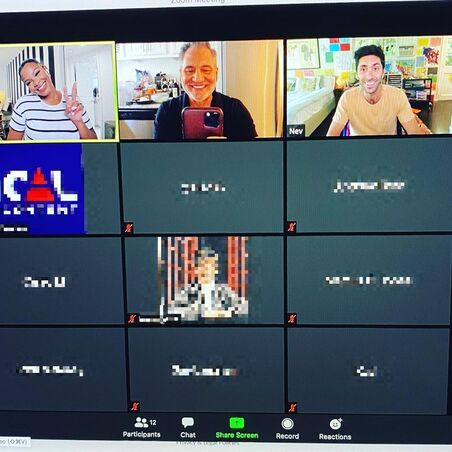 Zoom set-up for filming Catfish. Zoom set-up for filming Catfish. Zoom has been our savior, our ability to talk to each other and see what’s going on in real time. We send computers out to Nev and Kamie with software that we can control. We send a couple of small cameras to have as wide shots and through zoom I can explain exactly how I’d like to have the shot, and we can Facetime, and they can show me the shot, we did a lot of communicating like that. Our sound man has been able to find zoom recorders that take time codes, so we can sync the pictures to the sound so it’s editable. We found a way to do it. The main thing is having the software where my computer can talk to everyone else’s computer and our techs are able to make sure things are being recorded and that we get all the footage. The task gets more monumental because on a show like this, even though we wrap it up into a nice 45 minutes, one of our meetings might take four to five hours. So that’s a lot of footage that we need to group so that our post facility can gather that up and match where all the cameras are because we don’t have the ability to sync everything together like we do when we’re in the field. Bridget: It seems like a lot more work. Lots of challenges, you don't want to hear all of them. Our lives depend on good internet. It’s been quite a challenge but I’m so proud of Nev and Kamie, they’re amazing, and our post team who, even though we’re just sitting at the computer now, have found a way to still keep it so lively and interesting and I’m really impressed. It’s a small show and it looks like a small show but it’s a big family. Every stage of the way it’s impressive. 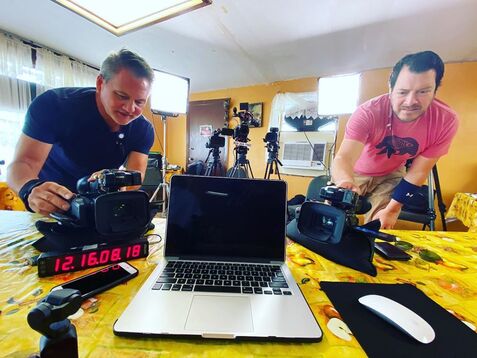 Catfish camera set-up before the pandemic. Catfish camera set-up before the pandemic. What did the camera set up look like before the pandemic? How many cameras and what kind? Before the pandemic I would travel with no less than 11 cameras. The cameras would range, A lot of point and shoot cameras that happen to shoot video. We started doing that very early on because Max was on the show with us - and Max and I were shooting basically everything. It’s hard to get all the angles one time through. Even though Max was just holding a little hand held camera - the intimacy he got from a person that was talking to him was an angle that was physically impossible for me to get unless I’m in the shot the entire time. We loved it and post loved it, and we really started to use those cameras a lot. We don’t use them as much anymore but I still take a couple of those, Kamie uses it quite a bit. I carry these little cameras (Cannon XF-205) , you can't even buy them anymore, because I think they came out in 2012. I love the camera because you have all the controls of a real camera, zoom, focus, iris control you can make it professional or you can do automatic audio settings. Kamie can take it and put it on her lap or walk around during one of our reveals like this on automatic controls, and she’s going to get something. She’s going to get an angle with the catfish looking right at the camera which we love - the raw intimacy is important to us. I also use C300 Mark II for when we’re sitting down. This is between the two (Canon XF705) which is a documentary camera, and we have five GoPro's. The reason why I have so many cameras is our show depends so much on someone's reaction. You don’t want to miss those moments. With less cameras you run the risk of missing things. We don’t do anything twice. Early on in the show I would sit in the middle and Max would shoot with his camera and it would be hand held and energetic and good, but we were missing a lot of so I added more cameras. A typical scenario is we are going to meet the hopeful, I might go to a set early and figure out where they’re going to sit, do some basic lighting, and drop off the cameras, but I don’t meet the hopeful (someone who writes into the show). We rig the car with GoPro's and then we’ll go back to the hotel. So when Ned and Kamie have their call time, they are already on camera - we follow them from the lobby to the car to the location. Me, my assistant camera, camera tech all hold the little cameras and walk into the house at the same time. We do this because we want Nev and Kamie to be part of the story. We don’t care how dirty it is, our biggest goal is to get the real reaction the first time, and we get all the honesty we can. No one actually meets the hopeful until the first day. We’ll roll the go pros and record their real goodbyes. That’s how you get real personalities and reactions. It’s complicated but it’s simple.
A little bit of control - still not as much as I’d like to have. That’s what just happened to your camera, I saw you move and the iris went up and the light changed. That’s what happens with these cameras; they're not professional cameras but at least we have a little control with them. I wish there was a way that if I were in control of your camera, I’d have some ability to pan, and tilt and zoom. There are cameras like that but you would have to be out in the garage not across the country. That would give me a lot more freedom but that’s why I have the other cameras locked down in wider shots for when those real moments happen. When you were on set during the pandemic did you have to get tested before and wear a mask? There was no set, our set was in the office, we sent them the equipment and taught them how to set everything up over zoom. But if I'm seeing Nev or Kamie we’re wearing masks, getting tested, taking all the precautions. What do you think the future of filmmaking looks like post pandemic? I’m still hopeful that we’re going to find our way back to each other. It’s not going to be overnight, it’s going to be a slow roll out, but I’m a history buff, and looking back through history we’ve had several pandemics, they’ve always subsided, and we’ve always come back together. We’re tribes people, we need each other. It won’t be overnight, I think it’s going to take a while, at first it’s going to be difficult shooting films, you're not going to find lots of extras in the background. People are going to have to write shows that don’t have big crowds. There's going to be scripted television where you go in, set up the shot get everything ready and then leave when the actors come in except for maybe two or three people, and they’re spread out pretty well. You won’t have all the crew and video village in the studio anymore. Slowly but surely as we get a handle on this and we get the vaccine, and the noise settles down and it becomes less deadly we’ll make our way back to each other. I believe that, I feel that. My son works on a reality tv show where they shot it in a bubble, it was very successful. The show basically bought up an entire resort, so the crew slowly arrived, got tested, quarantined, and nobody saw each other and finally, after all of that and time in quarantine they slowly got together and started building the show. There was no coronavirus, they shot the show for two months, at this one spread out location and it was very successful, they're planning on doing the next season very shortly. We’re all finding our way, I think the small shows are going to do okay, shows like Catfish because we don’t have big crews. MTV is being very cautious. When MTV is ready we’ll get Nev and Kamie back together in the same room. Maybe sitting a little further apart but that would be lovely seeing them together. Meet our people out in a park and stay outside and stay distant, we’ll find our way back. There are 20 of us on the Zoom associated with the show and at the end of our meetings Nev has us turn our cameras on, so we can all say hi. Do you have any advice for beginner DPs? There’s so many different avenues for DP’s, pick your lane. Really try as early as you can, what you really like, identify it. Are you super interested in multi camera sitcoms? Are you interested in films? Are you interested in taking over the corporate world? The YouTube world? And really focus in on that world and who the leaders of that particular lane that you pick are. Pick your path the way they picked their path. Obviously the easiest way is to go to a very prestigious school that hands out really amazing internships, and apply and win a great internship and go work for Martin Scorsese, that would be wonderful, but those things, that’s very rare. So you just have to pick your lane, really study the people you admire, how they did it, and learn from that. You don't have to follow their path - but learn from how they did it. You have to get to where the business is. I went to the University of Arizona, I had to find my way out to the west. still to this day there’s not a lot of work out there. Now I can go live there and commute after 35 years of connections, but I had to find my way and immerse myself in the world. Fall in love with story telling more than falling in love with your ability to shoot a gimbal shot or get nice lighting on a car. You have to know light, light is so important to know. Not just typical key light, backlight, accent light, actually study the light. When you’re sitting outside by a lake and you notice you feel really good, think about the light. When you’re looking at art and it makes you feel a certain way, think about the light. You can light with one single lamp, it might tell a story. You don’t need big toys, but obviously, understand the basics. Wide shot, medium shot, reaction shot, and understand the basic building tools of building a story. When I look at audition tapes and it’s just one beautiful shot after another, it really tells me nothing, I want to feel something when I watch. I want to feel stories and I want to feel that you understand story, you understand emotion, that there’s a person there. That directed or feels these shots. It’s not all about “look at this great drone shot I got”. 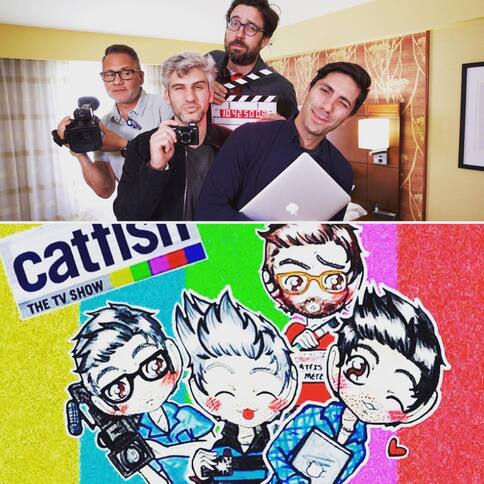 The magic behind MTV's Catfish. The magic behind MTV's Catfish. What’s next for you? Retirement hopefully. I figure I’ve got about ten years left in this business because I still enjoy it. I’m a freelancer so my life is still concurrent, I work for this company critical content, because of Catfish they have basically booked me in chunks at a time. They’ve got a lot of other projects going on, so I’m always working on other things. In fact this week and last week Catfish is dark, and I am working on a show with Kevin Hart who is doing a game show for E, called Celebrity Game Face, it’s also kind of a virtual show. Since COVID-19 our Catfish team has done a special for CBS, sort of shot in the virtual style Catfish episodes. People giving each other haircuts while we were at home in lock down. I’m out there doing other stuff but catfish is my main stay. I hope that Catfish continues on for a while. As I tell my friends all the time, us core people who have stayed with the show, we’re going to ride the wave all the way to the shore until MTV says okay it’s time to close the doors. We’re enjoying it. As far as other work goes I don’t really worry about that so much, but I’ve earned that. I’ve been around a long time so when I become available I know a lot of people and I can jump onto something else. I don’t have the big aspirations of “I need to shoot a feature film” because I’ve achieved everything I wanted to do. I’m not in it for any kind of attention, I get to direct shots, I get to pick cameras, I get to pick how the whole construction and the mood of the project is. When I was doing that on two minute news stories I was already happy, I had already achieved what I wanted to do. As different shows come along that’s great, but I’m just grateful that I get to do that. I get to manage a team, whether it’s two people or fifty people. I’m managing a team and trying to construct something for the visionary for the director or for the executive producer, trying to imagine what they're imagining and trying to bring that to life. It doesn’t matter if I’m doing it for something big or something small, I just enjoy doing it. I don’t think about what’s next, I just want to keep doing what’s now. Follow John DeTarsio on social!
2 Comments
By Luke Bechtel During their conversation, David and Bridget discussed the intricacies of the complex, competitive world of film festivals, such as tips about being accepted into festivals far and wide as well as the state of the festival industry amidst the COVID-19 pandemic. David also explored various aspects behind the roles and responsibilities that directors often have to juggle on set during the production of their films, including tricks for staying motivated and positive in a stressful work environment. David’s interview has been edited and condensed for clarity. Watch the video version here. How did you get involved in Chicago’s film scene? I was making movies sort of on my own, and kind of stepped away from that and had a couple of careers, and I ended up working at a school that had a film festival. That was around when [filmmaking equipment] was starting to reach the consumer level, so digital editing was coming into existence. That change democratized filmmaking. Through that, I was able to learn editing and the technology of it, and, from there, decided I wanted to become a lot more involved in film. Over time, I started off doing smaller projects and worked my way up to bigger projects; my network just started to grow from that to where we are today. Very cool. With the production sound stages at Cinespace and now Monkeypaw Productions filming Candyman in Chicago, the city’s becoming a very hot spot for filmmakers. Where do you see it in, say, ten years, and how can local Chicago filmmakers make an impact? Where I see it in ten years is largely dependent on the state of Illinois and the tax breaks that they offer. Currently, they offer a 30% tax incentive, and that brings a lot of productions in from the outside. That’s what’s driving a lot of network and feature production. In terms of what Chicagoans can do, just get involved. Start with local stuff, small stuff, get to know people. It’s still a fairly small community here in Chicago; nobody here is very far removed from anything big that’s going on. It’s just a matter of working your way into that. 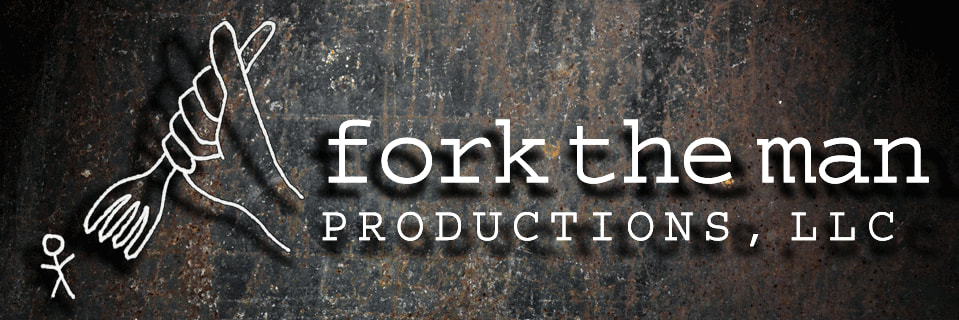 David Bradburn's Production Company. David Bradburn's Production Company. Yeah, I feel like there’s definitely a lot of smaller production companies that not a lot of people know about in Chicago. Do you have any that you’d recommend for student filmmakers to get involved with? I mean, I’d recommend my own! But no, there’s no shortage of production companies in Chicago. If you’re a student filmmaker, assuming you’re not working with a university, just start reaching out to people. Do your due diligence with searching. See where’s a good fit and what fits in your budget. Some companies won’t work below a certain bottom line, but others are a little more flexible. During this time, it’s a whole new ballgame; we don’t know what’s going to happen next, when the money’s going to start to flow again, or when production is really going to pick up. There are a few things starting to film, but it’s really not back in full swing yet. A lot of the things that have started to film are working with really, really, really skilled crews. The work is starting to come back, but it certainly is not back yet. Let’s talk about being an independent filmmaker and getting your film off the ground. We have a question from Puerto Rico, and Marco asks, “how do you find a producer and financiers?” To be honest, most of my own creative work has been self-financed. It was really just a matter of setting my budget for the year so that I had money to make movies. When I was teaching and working as a freelancer at the same time, I lived off my teaching money and created with my freelance money. So, looking for financing is always the trick, right? I wish I had a great answer that could help everyone find financing really easily, but no two projects are funded the same. It’s a matter of figuring out how the project you’re working on can get money. I’m working on a project now, and we’re looking to partner with an organization that deals with the topic that the film is about, and we’re trying to set them up as our fiscal sponsor. So, people will donate to that entity, and, in turn, that entity will grant us money, and people who donate will get a tax write-off. But crowdfunding is really hard! It requires an expansive network and needs to build momentum quickly. If you’re lucky enough to know somebody who’s connected to money, then that’s a different route to go. But there’s no one simple answer, and none of the answers are the same. I never really thought about reaching out to organizations that are similar to the topic you’re making a film about. That’s a good idea, especially for independent filmmakers. Yeah, it’s something we’re trying differently for this project. We’ll see how it goes. It’s taken us a lot longer to actually start raising money, but hopefully here at the end, it’ll pay off because once we finish the film, we’ll already have an entity in place that we can partner with for screenings that will help raise awareness of the social issues our film talks about. Can you talk a bit about that? Is it a feature? A short? It’s a short. It’s a dark comedy about testicular cancer - the title is My Best Nut. We’re looking to raise awareness and normalize conversations about testicular cancer, which, if it’s caught early enough, is a highly treatable disease, but it often isn’t. There’s a lot of stigma around talking about it, whereas breast cancer has really become ubiquitous in our society to talk about, testicular cancer not so much. I’ve had success with festivals where I’ve submitted cover letters, and success with festivals where I didn’t. I’ve found that with festivals, the more you network within that community, the easier it is to get accepted. It’s not just about having a good product. That’s certainly the most important thing, but if you know people, it’ll help. They get thousands of submissions, and they have to figure out which films to show. If you do get it, you should attend in-person; that’s how you meet people and your social capital starts to grow. Definitely. I miss film festivals right now because of COVID-19. I was supposed to be playing at the Milwaukee Film Festival, and that’s not happening. There was supposed to be a big festival through DePaul at the Music Box Theatre in the spring, that didn’t happen. Hopefully 2021 will see film festivals start to come back. I mean, it’s hard. I was supposed to play at a festival in Chicago this summer, and they just pushed it all the way to next year, where it’ll be a two-week festival; the first week will be the 2020 festival and the second will be the 2021 festival. It’s an interesting solution, but it doesn’t really do anything for us right now. In terms of thinking about production, I was stressed that I wasn’t working on anything, but now, even if I had, where would it get shown? Now that everything is going online and nothing is happening in-person, it’s kind of an interesting time seeing how festivals are adjusting to the situation. There have been a lot of virtual festivals, but I don’t know if that’s something I really want to do. I’m more interested in online screenwriting conferences - those are cool. Taking advantage of the virtual, free opportunities to talk to other filmmakers have been great. But film festivals? I’m not so sure. It’s still a good way to connect and see what’s being shown out there, but it’s not really for me. I think the Q&A element and the actual interaction is really important in the festival scene. We have a ton of online content that we’re consuming all day long, so adding a film festival on top of it where you’re watching either by yourself or with a couple of people just doesn’t have the same energy or intrigue as it does to attend in person. So, you’re right - it’s a difficult sell. They also need to figure out how to make money. They end up charging you a bit to get behind a firewall, which makes sense, but we already have things like Netflix and Amazon Prime, so we can get content that way to save money. That factor is important, because a lot of us aren’t making a lot of money right now. It’s a difficult, difficult thing. Exactly. It was kind of shocking to find out they were charging for virtual film festivals. There was one called Flickfair - it’s a virtual film festival, and one of my films got accepted, but they wanted me to pay actual money to get it shown online. I thought that was a little…”mmm, something’s not right here.” I had one [festival] that I got into that wanted everybody to pay to watch their own movie. As a filmmaker whose film was screening, I still had to pay to watch the films in the festival. I’m part of what made your festival happen, you’re showing my content - and now I’m supposed to pay to see that content? That doesn’t feel great. I get that they’re not able to open the venue and make money that way, but I don’t know if your content providers are the ones you should be charging.
I wouldn’t say I’m the world’s greatest cover letter writer - and that goes back to when I was looking for a regular job as well - but I think what you want to do is indicate anything that’s unique about your project up front. Location, subject, actors, anything that can make your film slightly different from every other film that’s telling the same story. At this point in human history, we’re not really telling new stories - we’re just telling our version of old stories. Anything that can make yours a little different, put that in there. Whenever I submit to festivals in town, I tend to make sure to mention that “hey, I’m a product of this environment.” Since you’re a freelance director, Jaleigha from Houston, TX wants to know, “how do you know you’re right for a project?” It really depends on how you decide what you want to do. Sometimes it’s as practical as, “this is a paid gig, and I need to get paid.” There’s nothing immoral about doing that, it might just not be my fiery passion, but it’s still an okay project to do. There’s times I’ve done stuff that, looking back on it, there was nothing really wrong with it, but it just wasn’t great. It either wasn’t a great experience, or the topic was something I was only mildly interested in, but it was still work. When you have the problem of plenty and you have to pick between things, that’s when you can roll up your sleeves and say, “hey, this is far more interesting and far more what I want to focus on, so I’ll go in this direction.” But really, just set your standards and stick to them. It’s okay to say “no.” Don’t make the fear of new work never coming again a driving reason to take a project. Just give yourself that freedom. As a follow-up question, how do you politely decline a project if you don’t think you’re the right fit or not a fan of the concept? You can just say, “I don't think I'm the best person for this project.” There’s nothing wrong with saying that. I've been turned down by people saying they've got family obligations, or they’re booked on something else. I assume that that's truthful, but it doesn't matter; it’s always okay to say no. You don't need to go into every last detail. If there's something really concerning or something really specific you can call that out, but it also depends on your level of familiarity with whoever is doing the hiring. 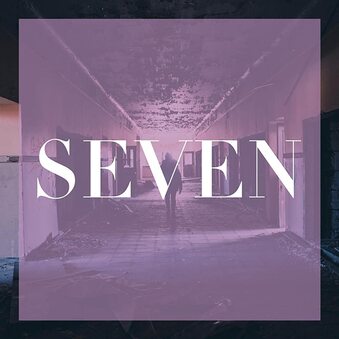 Artwork for David Bradburn's film, Seven. Artwork for David Bradburn's film, Seven. Your short film Seven focuses on the culture of violence in African American relationships and was written by Kia, a domestic violence survivor. Being a male director when the film is about two female domestic violence survivors, how important was it to work with her and get her perspective before directing? It was very important. I have a background in social work, so this wasn't the first time I talked to someone in a domestic violence situation, but understanding as best as I could the perspective and point of view of the characters is helpful to understand, these are the things that the character would be dealing with, and how do we get that to come out on the screen? I mean, was it more important in domestic violence than other stuff? I think it's always important to really have conversations with your actors, and those conversations become increasingly important when it’s something outside of your experience. Clearly I’ve never been a woman of color, so that was something I had to have more conversations about. According to the National Sexual Violence Resource Center’s website, nearly one in five women and one in 71 men in the U.S. have been raped at some time in their lives - it's heartbreaking. Talking about sexual harassment is becoming less of a taboo subject with movements such as the #MeToo movement, but I feel like as a filmmaker there's still no training on how to handle situations like this. Vince from Seattle wants to know, “how you handle sexual harassment on set?” I think that really comes down to your hiring practices - know who you're hiring so it doesn't become an issue. Don't let it get to the point that it's coming on set, because once it’s on set you have to address it swiftly. But if you are hiring people that either you know or other people know and you do your due diligence as someone’s employer, you lower the chances of that happening. But, I mean, it’s an issue, clearly. What about sexism on set? It’s hard being a female sometimes in the sense that I’ve had some sexist crew members and it's a hard conversation to have. Being on a film set, the work is difficult under the best circumstances, and adding [issues of sexism] to that only makes it worse. It becomes a matter of addressing it directly – you can’t just sit and wish it didn’t happen. You have to say, “no, it won’t happen.” If it's someone from the grip department, you need to have the producer and the DP [director of photography] take action; there are chains of command. If it happens to an actor, that becomes a different level of problem because you're trying to pull a performance out of that person and now you’ve tainted that space, so that has to be addressed. So again, a lot of it goes back to cultivating who the people are in the tribe that you have on set. The reality is, too, that your reputation will spread pretty quickly. That’s even more impactful in the indie world, as if you’re not an A-list actor who commands a lot of money and studios are very invested in, you’ll get dropped pretty quickly when word gets around that you’re a problem on set. It’s definitely a major problem. As a director, I believe it’s very important that everyone feels comfortable to be themselves without being judged on set. Troy from the United Kingdom asks, “how do producers and directors ensure their work environment is a friendly and collaborative place?” Not to sound like a broken record, but it all goes back to who you're hiring. Make sure you hire people that are going to gel together as a team, and then establish how you behave on set. It has to come from the top down; have a producer that can manage the climate and hire department heads that work well with those that are assisting them. I think the more that you can be relaxed in that intense environment, the better. Good preparation helps, too. There's no substitute for good pre-production, and that will help mitigate stress on set. The less stressful the set is, the less likely people are going to be acting out of their stressed self, which would make things more tense. But, again, hire well.
but if you’re filming a really difficult scene that day, you’re not going to put on some dance song and have everybody be up and pumping. You also have to be sensitive to the fact that these actors have to get into a certain space to perform well. You want to be really sensitive to what their needs are as well. There's no one simple answer because there are so many variables and it's just looking at those variables and figuring out what the best solution is. I agree with what you said about making sure everyone feels valued on set, and actually knowing names is important too. Yeah, I agree. The bigger the set, the more difficult it is, though, because as a director I have a lot of responsibilities and I can't always talk to everybody or know every name, but somebody needs to do that, so everyone knows that they are included. We're all finite in what we are able to bring without taxing ourselves too much. It’s the same with the actors; they don't need to go around and converse with everybody because they need to be in the space that they can perform to get more into their role. Roger from the United Kingdom wants to know, “if you have to fire someone, how can you let them go politely and respectfully?” Fortunately, it hasn't happened a lot, and I can't think of a time that we've ever had to ask somebody to leave the set. There have been times that we've not asked them to come back, where, at the end of the day when we wrap on the project, you just replace that position. More common is the list of people that you don't want to work with again. If you’re showing up late, not doing your work, slowing down production, then you’re going to go on the list of do-not-hires. A lot of the firing is passive in that I'm just not bringing a person back. I've never had to be in a situation where we have to send somebody home that day, but there have been times where there was some overbooking, so we had to send people home early in the day - but they still got a day's pay, we just weren’t able to give them actual physical work. That wasn't great either, but it wasn't as hard of feelings because they still got paid. It’s definitely difficult. It’s even harder when you first start off and you can’t pay your crew. I had a producer once who just simply was not putting in the effort, not showing up on time, and it’s a hard thing to politely tell them it’s not working out. I had to write an email because I felt bad saying it to his face, but it was obvious that he knew what he was doing wrong, too. But let’s admit it: being on set can be really stressful with a million different people asking you a million different things. Jaleigha from Houston, TX asks, “as a director, what’s something you don’t want to forget while on set?” Um…what I'm doing? Yes, you have so much to remember as a director, so what's nice is when you have someone like a script supervisor or an assistant director to help you remember certain things. I think having really good notes going into shooting of what you're doing and how you plan on executing it is also very important. You should be having these conversations with the DP so that you two are on the same page, but all that takes place before filming actually starts. 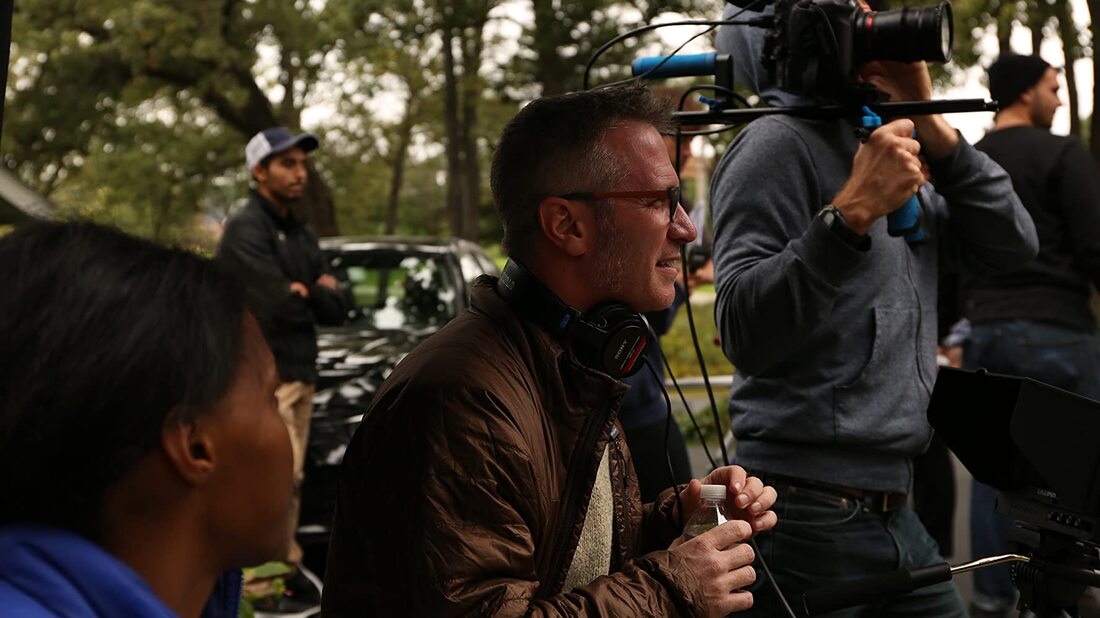 BTS from Bradburn's proof of concept, Some Years Earlier. BTS from Bradburn's proof of concept, Some Years Earlier. When you're in the moment, you need to think, “this is what we were trying to do, this is what we already have established, now here are the variables we anticipated.” There are times when I've wanted certain shots, I had them on the list, and somehow we forgot. You know, that kind of stuff happens. Making sure that you have enough coverage to cut the piece together when you're done is possibly the most important thing to remember. There is a lot for the director to do, and if you’re on set and the director seems to be preoccupied with something else, they’re probably preoccupied with a dozen more things, so don’t take it personally. I feel that, though. Sometimes, you get so in the moment that the shot you really wanted ends up forgotten. But you’re right, having an assistant director is beautiful. It’s a great experience. As a follow-up question, Val from Vancouver wants to know, “how do you deal with pressure and expectations put onto you?” It’s helpful to keep in mind where those expectations are coming from. If it's my personal project that I wrote, financed, and directed, then I'm pretty good at establishing expectations. The point of the phrase that “filmmaking is an exercise in disappointment” is that you have this vision, and you have what you can make - those are not the same thing. Just get comfortable with that. Always strive for your vision but realize that there are a bazillion variables that are beyond your control. When the expectation is coming from a client or an agency, that becomes different. A lot of that is to communicate as much as you can going in and try to really listen to what your client isn’t understanding so that when you get done with production and you get into the edit, people aren't surprised coming back to you with frustration and disappointment. Communication is key - just give yourself some grace. You're not saving lives; you’re making a movie and working with a bunch of people in an imperfect environment. Nothing is going to be exactly how you hope it to be. It is sometimes disappointing, but you also need to remember to just let go and have fun. Don’t be afraid to make mistakes. Even if your finished product isn’t a great movie, you still learned so much being on set. People ask me all the time, “what’s your favorite of your movies?” and I can never pick one because they’re all important in different ways. I can look at the one where I learned to do this, or learned not to do that, or the one that suddenly got me more public exposure. But then, I remember that that public exposure came only because of the lessons I learned on other films. So, to have a favorite one of mine, I can’t. You’re right about having fun; sometimes it’s work, and it feels like work. But sometimes, it’s a blast. It’s the whole process. It’s every piece along the way where you can look at it all collectively and say, “was that fun?” How has the pandemic affected your work or creative process? It’s decimated work - completely took it away. [The pandemic] has changed things drastically in that it's made the creative process more difficult. I can write now because all it takes is a computer, but there's a dearth of hope at this moment. In the past I could say, “I know I can put this together because I know we can do x, y, or z. Now, I don’t know what we can and can’t do. With My Best Nut, we’ve got some scenes where there are children in a hospital and the main character’s reading them stories and stuff, and it's a really great scene that says a lot about the character, but I don't know if we can film it. Now we need to figure out how to tell that part of the character’s story in a different way. That’s made the creative process challenging. Not knowing when work’s coming makes me say, “well, why do I write today when I can write tomorrow?” There's no urgency because everything is just a big question mark. I feel like there’s a lot of fatigue in this moment, too. You’re exhausted because you don’t know when this will all be over with. And we still don’t know. Yeah, not knowing is so draining. What about your mental health? Has it definitely changed? The way I’ve talked about it is, I spend a lot of energy staying positive. When I’m spending energy staying positive, I don't have energy left over to progress. It’s definitely been a drain. When this first hit, it was like we got a month free – I’m fairly introverted, so I said, “whatever, I could stay all alone and stay motivated, I know I won't sit around watching Netflix all day, I’ll try to stay active. But as it's dragged on, it’s becoming more and more of a challenge to get up and feel like, “hey, what I'm going to do today actually matters.” It’s gotten hard. Is there anything that has helped you stay motivated that helps you see the light at the end of the tunnel? Really just digging in and saying, “I still find enjoyment in doing this.” I was just talking today with a DP about an idea I had not so much for a story, but rather a way to approach doing something during this time. That type of conversation is exciting because there’s a sense of possibility. Whether or not we’ll try to pull it off remains to be seen. Staying in touch with people that are in the same situation as you trying to do the same things is encouraging. The fact that we’re all on the same boat helps. What’s next for you, David?
Honestly, I don’t know. I spend a fair amount of time looking for work. I’ve got a film for which we’re hoping to start raising funds toward the end of the year to shoot next spring. Aside from that, honestly, I don’t know what’s coming next. That’s part of what’s draining; for the first time in my life, there’s fewer guarantees that whatever I plan will actually happen. We are very much in survival mode now rather than thriving mode. Definitely. Trying to figure out ways to adapt to this “new normal” is all we can do. It’s interesting that there are a lot of films being done virtually now through Zoom and stuff like that. I think that opens up a world of new possibilities too. You’re right, and it’s a matter of finding the right story. I’ve always struggled with writing that “two people in a coffee shop” story, like a feature with two actors and one location. I’ve never had the story that fits that mold. I’ve certainly written with some pretty tight parameters, but the more I write, the more I want my stories to have space in them. But what’s the story I tell with a bunch of people on Zoom? There’s been some stuff that’s come out, and some of it’s been pretty good, but I just haven’t found what my plot is yet through that vehicle. David Bradburn lives and operates out of Chicago, IL. According to his website, his current projects include a documentary titled Through Air & Water and a coming-of-age film called Some Years Earlier. He can be contacted by way of his production company’s website, www.forktheman.com. “Everything Has Changed:” The Shifting Role of Actors During a Global Pandemic with Curtia Torbert8/27/2020 To kick off the launch of our new weekly podcast, Dare to Dream Productions Podcast, hosted by director Bridget Johnson. Local actress and singer Curtia Torbert shares her experience of working as an actress during the global pandemic. By Luke Bechtel 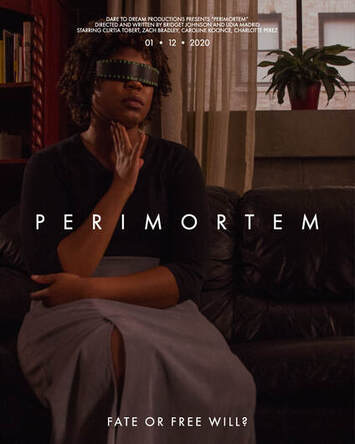 Curtia Torbert stars in Bridget Johnson's sci-fi film, Perimortem coming out in 2020. Curtia Torbert stars in Bridget Johnson's sci-fi film, Perimortem coming out in 2020. Curtia's love for performing spans more than a decade and includes theatre, television, film, and commercial work. In addition to acting, Curtia has directed and produced work for the stage. In 2014, she graduated with a BA in Acting and later received her MBA in 2019. Curtia welcomes the opportunity to collaborate with filmmakers. Curtia’s interview has been edited and condensed for clarity. What projects have you been working on? Right now, everything is very slow. Before the shutdown, I was working on a feature, but now we’re in limbo. A lot of productions have been dealt those cards where everyone is just waiting. Luckily, the commercial industry is still up and running, but with a lot of changes. Especially around the beginning of the shutdown, the way commercials were being produced was way different than how it usually is. Usually, you get cast, you get your script, and you go on set for a couple of days. However, since a lot of states shut down, you ended up seeing a lot of voiceovers and stock footage - even now, if you turn on the TV, a lot of the commercials are using a lot of stock footage, so the voiceover industry was booming. I’m not a voiceover artist. But the voiceover artists were really, really working. Of course, you can’t really sustain that for long. A lot of viewers really appreciate the actor - the person they can see and hear. After that stage, commercials moved towards filming from home. Now, finally, now that the industry and country are opening back up, I’ve been able to participate on set in commercials. Of course, with these commercials, they still include the coronavirus reality. We would film a “normal” commercial, then a second take with coronavirus social distancing standards, so we always have those two options for when it actually airs on TV. Everything has changed. So what’s it like to be on set? Do you have to wear a mask and is there social distancing? For every commercial, there’s of course an NDA (non-disclosure agreement) so you don’t share information regarding the production until, obviously, it’s released. But now, there’s an entire other contract that involves just health. So your temperature had to have been taken in the past 14 days, it asked if you’ve been around anyone sick in the past 14 days, you know all the coronavirus guidelines that we have to abide by. So, on set, every so often, we have to get our temperature taken, and we must wear masks right until we start filming - unless there’s a take that requires a mask. And then, while we’re all holding, we have to social distance.
You’re so excited to get this opportunity to do what you love, but there’s still this anxiety - there are still people on set. I hope I don’t get sick, I can definitely be accountable for myself with staying healthy, but how accountable are these people that I’m working with? So there’s definitely still a level of anxiety and consciousness of the reality of the times, but leaning more into taking those precautions and making sure I’m doing everything I can to stay safe. Is there anything you think actors should do to make their actors feel safer on set? In my recent personal experience, I don’t think there’s anything anyone on set could have done differently to make me feel more comfortable. I definitely felt comfortable while I was there. Our contract that came out ahead of time was very clear that everyone on set was expected to uphold these requirements. Everyone would be taking these self-checks and temperature checks, and everyone always wore a mask on set. They were very transparent and aware of our needs and wanted to be very respectful of our comfort. I don’t know what else a director would do or should do outside of the amazing experience that I had. Everyone on the crew wore masks, we were constantly asked “are you comfortable?” We had different scenes and location shots within the area, and we were always asked, “do you mind taking off your mask?” And I appreciated that. Here’s something that a lot of productions are doing, especially commercials; they’re asking people auditioning for roles in pairs, families, or couples to audition together. So, if there was a couple that was kissing, they’d rather cast a real-life couple who have been quarantined together and do live together, so there wouldn’t be any discomfort of being close to someone they don’t know and aren’t familiar with. What’s it like right now applying for acting jobs? Has the demand decreased? Oh, yeah. Yeah. Definitely. Like I said, I’m not a voiceover artist - the demand for them has shot way up. They are working. They’re turning work away. My work has decreased, obviously. Because so many projects are casting families or couples, I live alone in Chicago, so that made it difficult to get cast in projects. Luckily, I did this commercial with my nephew - he’s four months old now - and the commercial was filming in his home state, not here in Illinois, but I was able to work as a local hire there. I really lucked out with that one. If I wasn’t able to work with my nephew, I most likely wouldn’t have been cast. I always recommend actors and artists to continue training. There’s always gonna be someone who’s learning new skills and techniques and they’re gonna surpass you. As far as training, a lot of training has gone virtual as well, and a lot of it focuses on voiceover training because that’s what’s casting right now. And it’s likely that’s what’s going to be most heavily cast for the next few months to a year. Is there any training in Chicago you’d recommend for actors in Chicago? The Forge, formerly known as Blue Door Collective, has voiceover training, screenwriting training, production training, acting 101, and master classes. They are really the full circuit for filmmaking. I’ve done a few workshops with them, and on their Facebook page they offer some free courses as well. They’re really great. We’re in kind of a weird phase right now. Shelter-in-place is over with, but people are still staying inside. How was your shelter-in-place? What did you do during that time? Oh, gosh. That was hard emotionally, especially for someone like me who already suffers from bouts of depression and anxiety. Just the smallest triggers will send me into chaos. Just the first few weeks of the mandatory stay-at-home order were really hard on my psyche. Especially since I live alone; my whole family is in the South and my husband is away on military duty. So, reading, praying - over time, I found that short walks are really helpful. Talks with family and friends, therapy - I found that all of those together have been really helpful. Still, you have your hard days and you have your good days, and it’s all about managing it. Exercise is really good; since the stay-at-home order, I’ve gotten involved with online exercising. I just do it in my room. I’m able to sleep a little bit better at night after that. I’ve just been taking it one day at a time knowing that it’s not just me. Everybody is having to deal with this. Somewhere or another, people are able to work and pay their bills as they’re dealing with COVID or are sick and afraid to go to the hospital because they’re scared of contracting COVID. So, just, you know, breathing, meditating, taking it easy, and reminding myself that it could be worse. Sometimes those inner thoughts don't always give me a lot of energy to get out of bed, but it does help to remember those things. It’s definitely a hard time to live alone right now. It seems like we’re dealing with not just the pandemic, but also a historical revolution, and all this stuff with the president, and it’s just been a hard time. But I think there’s a lot of positive change happening, especially with police brutality and new laws being in effect for that. It’s definitely a momentous year. When you think about what could happen, everything is happening. If there’s an apocalypse in 2020, I wouldn’t be shocked. Me neither. There’s the largest civil rights movement ever, gay pride is at an all-time level of awareness, a historic election, and the coronavirus pandemic - what else could happen? I hope something positive. So, what do you think the future of film sets looks like? Do you think these are temporary regulations or permanent? Maybe a mix of both. I think people are going to be a lot more conscious of health and safety not just in the industry, but in everyday life. There was a running joke on social media that said, “you really waited until a pandemic to learn how to wash your hands?” But now, even people like my little cousins will wash their hands and sing “Happy Birthday” while washing up now. They’re kids; they’re six, four, and two. That’s just going to be their new normal; in twenty years, they’re just going to be doing it. I don’t know about masks being the norm forever. I know in other countries, the general public has been wearing masks for years. But who knows? Maybe it’ll be a new normal to always be taking your temperature. Maybe they’ll be including clauses in contracts about health and safety rather than making it a whole separate contract. I do think that the industry is going to morph into something that’s a combination of what we had before and what we have now; I just can’t imagine continuing like this forever. It’s difficult to imagine. Even when you’re talking about the release of films, a lot of production companies are releasing films straight to digital. There was even a movie theater that said they’re no longer releasing a certain company’s films in theaters, so a lot of films are going straight to DVD or straight to digital way faster. A lot of companies are also realizing that they get more viewers on digital platforms than they would in theaters. I feel like we’re learning a lot of new opportunities that we’re forced into that they wouldn’t have realized otherwise. There’s this camaraderie when you can sit in a huge room full of people and laugh and cry at the same things. 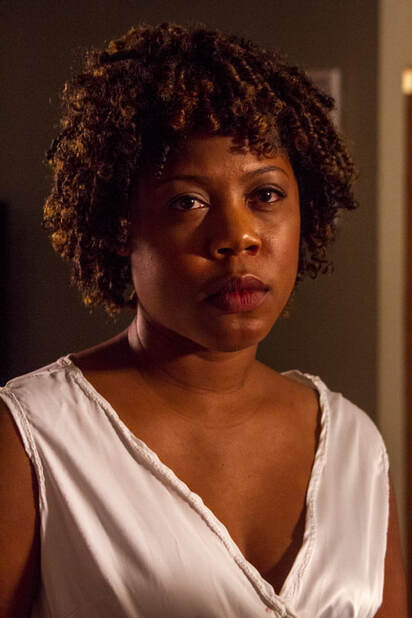 Curtia Torbert as Ophelia Collins in Perimortem. Curtia Torbert as Ophelia Collins in Perimortem. I can definitely see that, especially because people are staying at home and you save a lot of money streaming things compared to going to the movies. But, again, going to the movies and seeing something on a big screen with a crowd of people is amazing. Especially when you can see your work on screen; it’s a real feeling of accomplishment. I just hope movie theaters never go obsolete, because that’d be really sad. Especially for people in the film industry. There’s this camaraderie when you can sit in a huge room full of people and laugh and cry at the same things. People can be rows away but there’s still this connection to this film you’re all watching together, and to think that that could be gone one day is really sad. Drive-in theatres are coming back, which is really interesting. So what's next for you? I don’t really know. I’m really just taking it one day at a time. As you know, I was writing my first film - a short - so I’m currently doing rewrites for that. I first started writing in January of this year and hoped to get it produced by the end of this year, but, for obvious reasons, that isn’t going to happen. I considered adapting it to a short story, or I might put it on hold until next year. There was a TV show, CBS’ All Rise, and it was the first TV show to have a coronavirus-centered plot, and they did it completely from the actors’ homes. They incorporated Zoom and toyed with the idea of holding an entire court hearing via video. Like, “how could we do this? Is it legal? Will it work?” It was fascinating seeing the possibilities. It sparked something in me; would I be able to produce a romance film completely through a video call? How would that look? It’s been hard to concentrate. All these self-help things you can do like exercise, read, write, and take walks, sometimes make it hard to concentrate on work, for me, at least. I had to deactivate my social media and didn’t turn on the TV for, like, five days because all that was coming through was news on coronavirus and police brutality. I just had to unplug and not think. Follow Curtia Torbert for updates! Interested in working with her? Find her on: Actors Access Casting Networks Backstage Stay tuned for next week's podcast with experimental filmmaker, Elizabeth J. Cassidy!
dare to dream productions podcast |
bridget johnsonHOST + EDITOR Bridget is a Director and Writer studying Digital Cinema at DePaul University. She specializes in writing and directing feel-good films that leave the audience thinking about their own lives and their impact on this world. Fun fact: Her films have been shown at the Museum of Contemporary Art and the AMC theater in Times Square. |
AMELIA GROSSMANGRAPHIC DESIGNER + WRITER Amelia is a Chicago teen actress and is in junior high. She’s been acting since she was 4 years old and aspires to be a famous and well-known actress. Her hobbies include writing, cosplaying, and watching anime. Fun fact: She has written a 50+ page fantasy story in a few months worth of time. |
LUKE BECHTEL PODCAST EDITOR + WRITER Luke studies Editing at DePaul University. His overall goal is to tell people's unheard stories in unique ways using creative methods of visual storytelling, oftentimes combining mediums and styles as a means of pushing my storytelling forward. In his free time, he likes to read, cook crazy new recipes, and spend time with his girlfriend, Louise. Fun fact: He's a magician and does card tricks! |
We at Dare to Dream Productions stand in solidarity with the Black community and the protesters fighting for justice and change across the world. We demand justice for the families and friends of all victims of police brutality. These officers must be held accountable for their horrific actions. We must remember George Floyd, Breonna Taylor, Ahmaud Arbery, Michael Brown, and many other Black victims of violence.
We will continue to fight against systemic racism. At Dare to Dream, we amplify voices that have been marginalized and create active discussions through our films. We will not be silent. We fight for equality in hopes of a brighter future. We must not only hope but take ACTION!
Here are some ways YOU can get involved in dismantling white supremacy and police brutality. We acknowledge not everyone has the money to donate BUT you can make an impact in other ways.
We will continue to fight against systemic racism. At Dare to Dream, we amplify voices that have been marginalized and create active discussions through our films. We will not be silent. We fight for equality in hopes of a brighter future. We must not only hope but take ACTION!
Here are some ways YOU can get involved in dismantling white supremacy and police brutality. We acknowledge not everyone has the money to donate BUT you can make an impact in other ways.
Educate yourself and your loved ones and SPEAK UP!
|
Support Black-Owned Businesses
Donate/Support
| |
|
Volunteer
- My Block My Hood My City in Chicago is looking for volunteers “to help repair small businesses from the damage done by out-of-state looters”
- Sign up here!
Watch and Share Work by People of Color Filmmakers
|
Vote!
| Make sure you’re registered to vote! Register here! |
We hear you. We stand with you. Black Lives Matter!
In solidarity,
Dare to Dream Productions
Dare to Dream Productions
I want YOU to be involved! Deadline is May 27th! Let's spread some positivity during shelter-in-place by filming a 20-60 second clip of what you're doing during shelter-in-place such as cooking new foods or picking up a new hobby or the landscape like the emptiness of your town or city and a 1-2 sentence piece of advice or something positive you think would be helpful for others to hear. Do you want to take part in this? Follow these steps.
1. Please record the video with either a camera or your phone (use landscape/horizontal mode) please no webcams. Please film in your native language (add in the body of the email in English what you spoke). I will add subtitles. Don’t use any filters and editing is not necessary. If you have access to a tripod, please use it. If the video is too large, please zip it.
2. Email your video to pandemicpositivityproject@gmail.com with the subject titled: YourFullName, Prounouns (she/her/hers, he/him/his, they/them, ze/zir), and CountryWhereYouFilmedorStateorProvince
1. Please record the video with either a camera or your phone (use landscape/horizontal mode) please no webcams. Please film in your native language (add in the body of the email in English what you spoke). I will add subtitles. Don’t use any filters and editing is not necessary. If you have access to a tripod, please use it. If the video is too large, please zip it.
2. Email your video to pandemicpositivityproject@gmail.com with the subject titled: YourFullName, Prounouns (she/her/hers, he/him/his, they/them, ze/zir), and CountryWhereYouFilmedorStateorProvince
deadline to submit is may 27th!
If you want to share on social media tag @dtdproductions #pandemicpositivityproject I appreciate you being a part of this! These are very hard times for everyone but I believe we all get through this together if we unite! I want to spread some positivity and hope for things to get better! #pandemic #covid19 #positivity
wanderings
“Not until we are lost do we begin to understand ourselves” - Henry David Thoreau
A GUIDE TO GETTING LOST
- Take a walk somewhere new or without a destination.
- Sit on the grass and breathe deeply. Observe your surroundings. Taking in the colors and textures of everything.
- Carry your camera or phone and take a photo each day of something that intrigues you or has meaning to you.
- Listen to a song that is entirely different from your favorite genre.
- Free write in a journal without stopping. No judging. Just let the words flow into the next.
- Draw or paint something without having a specific thing in mind - just start, then finish.
- Google a question or a topic that you’re interested in. Keep reading articles about it or watching videos about it.
- Drive without a destination in mind. Take a right turn then maybe a left then another left. Listen to what your gut is saying. Stop when you feel ready and observe where you are. Go explore.
- Do something nostalgic or go someplace nostalgic. Pretend to be a little kid again.
- Go to a different grocery store than you usually go to and make a new recipe. Use all your five senses while cooking and eating it.
- Go to a new store that you’ve never been to and try on clothes that you usually don’t wear. Record how they make you feel.
- Explore a new area of your town or if you have the resources go to a new neighborhood or city that you’ve never been before. Take photos or video of the place.
Comment if you've done any of these activities and if you'd like share a photo with us by clicking the button below!
Hope everyone is having a great start to their weekend! Right now I'm in a class at my university called Creative Methodologies where we learn techniques to become more creative and build writing routines. My professor gave us this exercise that will help create your creative biography and develop your style as a writer. I thought I'd share the questions and my answers to them so you can learn a bit more about me and my goals for Dare to Dream Productions.
Stay safe and never give up on your dreams even when most of us are on lockdown. Now is the time to make plans and self-reflect so when this is all over we can be more confident and achieve our dreams!
1) What is the first creative moment you remember?
The first creative moment that I remember is when I was around six or seven and I started to write and illustrate a story about the headless horseman in my composition notebook for class. When everyone else in my class was writing and drawing stories about princesses and fairytales I was focused on monsters. I was inspired by an episode of the TV show Wishbone that was about Sleepy Hollow. This story was the beginning of me starting to have a passion for writing.
2) Was anyone there to witness or appreciate it?
I remember showing my dad who brought me up watching Creature from the Black Lagoon and Dracula. He appreciated the story and said that I should continue writing a second story. On the other hand, my mom was a little nervous that I was writing about monsters and suggested I write something “happier”. But I found happiness in the horror and the unknown.
3) What is the best idea you’ve ever had?
Honestly this is a very hard question. One of the best ideas I’ve had was attempting to write my first feature film I wrote last winter break on my own without having any experience and completing it. It was a feat. It’s a horror/thriller film about a nursing student who gets kidnapped by a rideshare driver. The young driver puts on an impression of a charming man but is a Christian fanatic who forces heterosexuality onto people who are homosexual. The student nurse’s girlfriend and parents investigate with a group of detectives to find her love. I pitch it as Get Out but gay.
4) What made it great in your mind?
The fact that this is not just a LGBT+ film but rather a horror/thriller film that just turns out the protagonist is gay. It’s not a cliché story about coming out and it ends on a positive note unlike a lot of LGBT+ films. It’s not an overdone horror idea or fits any tropes. It’s great in my mind because it can be relatable to people specifically women who sometimes feel nervous about taking an Uber alone at night or feeling targeted by men. It’s a real horror that many have experiences with.
5) What is the dumbest idea?
The dumbest idea that I had was my 24-hour film idea about an alien roommate that came to planet Earth. It had a deep social message about members of the LGBT+ community that are oppressed.
6) What made it stupid?
It was stupid because it was supposed to be a comedy, but the jokes ended up being rushed and the timing was off. We didn’t have enough time to film and edit it well, so it ended up being very ridiculous and cheesy. The social message wasn’t clear enough too so some of the audience members were confused.
7) Can you connect the dots that led you to this idea?
I was dealing with a hard-living situation where my ex-roommate ended up being homophobic and she didn’t want my ex-partner to spend the night at my house even when we had separate rooms. She started to become passive aggressive and make jokes about how she was a straight girl who just makes out with girls when drunk to get guys. I had the idea to create a story based on this and how people react to other’s differences.
8) What is your creative ambition?
My creative ambition is to continue to grow my production company, Dare to Dream Productions, and to be able to hire creatives onto my team. I want to create and fund inspiring feature films. I want to make hiring womxn, people of color, those who a part of the lgbt+ community, and other minorities a priority. Giving back to the community and education would be our mission. My overall creative ambition is to inspire others through my films to follow their dreams and be a role model for young womxn.
9) What are the obstacles to this ambition?
The obstacles are having the money to create films and money for a studio/office space. Another obstacle is not having a lot of business experience, so I feel like I would need to take a business class or workshop about owning your own production company.
10) What are the vital steps to achieving this ambition?
Some vital steps to achieving this ambition is to find money possibly loans or a grant in order to rent an office space and to hire creatives. I need to possibly have directed a feature before and have more experience in the film industry. I need to figure out where the office space would be and if I want it to be in California or to continue living in Chicago.
11) How do you begin your day?
I begin my day by drinking coffee in my living room with the windows open and writing or journaling. I try to continue what I started the day before if I’m working on a feature or TV series but sometimes I feel the need to journal. Sometimes I make a to-do list or check my schedule on my phone. I eat some breakfast after writing for about an hour, take a shower, brush my teeth, and get dressed for the day. Then, I’m off to work or school depending on the day.
12) What are your habits? What patterns do you repeat?
I have a habit of writing in the morning because I feel like I get the best ideas in the morning right after I wake up. I have a habit of working out or skateboarding on certain days of the week after work/school. I have a pattern of going to the same coffee shop on Friday’s to do homework and work. It’s called New Wave in Logan Square. I always get the same drink: Carmel latte iced or hot depending on the weather outside. I have a habit of doing the same twenty-minute guided meditation at night just before I’m going to sleep. It puts me to sleep and I have the most vivid dreams.
13) Describe your first successful creative act.
My first successful creative act was when I was twelve and I won the Schaumburg library children’s film festival for my film called Depressed. Scared. And Alone. It wasn’t successful because I won but because I met other student filmmakers and it was my first film festival. I learned how much I love supporting other filmmakers work and discussing film ideas with them.
14) Describe your second successful creative act.
My second successful creative act was when I made my first LGBT+ romance film called The Girl at the Library senior year of high school. I finally felt confident in myself to create work that had LGBT+ characters and for my parents to see this work. I was not openly out of the closet at the time, so this film was kind of like a coming out. It was also successful because I got to give a talk to the youth at my church about accepting yourself as queer and my process as a filmmaker. I posted it on Youtube without thinking it would get many views but now it almost has a million views! It makes me happy to see the comments because a lot of LGBT+ youth relate to the film and even make friends in the comment section. It provides a sense of community and that’s my dream as a filmmaker.
15) Compare them.
My first successful act captures my first experience attempting to make a film about social problems and exploring how to put my own experiences into my art. My second successful act captures the growth of self-discovery and acceptance of who I was and how there’s always a connection between my life experiences and my films. I was more confident in my second successful act than my first.
16) What are your attitudes toward:
a. Money?
Money means nothing to me except the fact that I need it for my creative work. I don’t value money because it separates humans from each other and has caused harm to many throughout centuries.
b. Power?
Power to me also separates us in a negative way. Power can change people for the worse and make them want to dominate people, situations, or things. From a different perspective, the right people in power can influence people for the better and serve as a role model. My dream would be to be one of these people.
c. Praise?
Praise to me is more important than money or power. To find those people who truly appreciate who you are as a person and support your work is beautiful. It’s life-changing.
d. Rivals?
I think rivalry can be positive and negative in different situations. Sometimes rivalry can challenge people to try new things or take risks and to try their hardest. Other times rivalry can stress people out and bring out the worst in people. My attitude towards rivals is instead of competing all the time why not work together and help each other with our struggles?
e. Work?
My attitude towards work is that work is really not “traditional work” if you are having fun. Work should be you doing your passion for money. Work should make you happy and if you hate your job you should try to leave it but not everyone has the privilege of doing this so easily. We’re on this planet for too short of time to be miserable for years doing something you couldn’t care less about.
f. Play?
Play should be an aspect in every single job regardless if it’s defined as creative or not. We should play in every relationship too and take risks. We’re so curious when we are younger but as we get older most of us lose the sense of playfulness and curiosity. We must be aware of this and continue to play in every aspect of our lives.
17) Which artists do you admire most?
I admire Greta Gerwig, Jordan Peele, and Jennifer Reeder.
18) Why are they your role models?
They are my role models because their films take on social problems and I can relate to their protagonists. Their films leave me wanting more and always coming up with questions or inspiration for my own work. I get a sort of “high” after watching one of their films. They also all seem like genuine down to earth filmmakers that want to impact the world just like me.
19) What do your role models have in common?
They all believe in solidarity, intersectionality, and creating films with good representations. They explore similar themes like family, fear, love, and community.
20) Does anyone in your life regularly inspire you?
My friend and mentor Charlotte Kennett inspires me to never give up on my dreams and to keep going when I want to give up or think I have failed. Being on set with her taught me a lot about the qualities of a great and mindful director. She cared about every single person on set even the PA’s and caterers and made everyone feel valued.
21) Who is your muse?
I would say my best friends, other artists, and philosophers like Alan Badiou and Ralph Waldo Emerson are my muse.
22) Define muse?
Muse means that they are inspirations for my work.
23) When confronted with superior intelligence or talent, how do you respond?
Sometimes I am intimidated when someone has a lot of knowledge or extreme talent. I respond by trying to learn about their processes and ask for any advice they’d give me. I listen closely and observe how they talk or create.
24) When faced with stupidity, hostility, intransigence, laziness or indifference in others, how do you respond?
First, I take a breath and try to not get upset or angry with them. I think of what I’m feeling and try to see things from their perspective to think about how to respond to the situation. I speak softly and not in a passive aggressive or angry manner. I try to start with something positive their doing and then continue with what they’re doing wrong or how they’re not putting in equal effort.
25) When faced with impending success or the threat of failure, how do you respond?
a.Success:
I respond with being grateful and thanking those who have helped me and supported me through the process. I respond with lots of energy and smiles. I believe hard work pays off in success.
b.Failure:
I respond by breathing and trying to center myself. I try to think positively and seeing things from a different perspective. I say affirmations to myself in hope things will go right. I remember that everything happens for a reason and sometimes failure is supposed to happen in order for us to learn something or to make way for something better.
26) When you work, do you love the process or the result?
I love the process! I love developing stories and outlining character arcs. I’m a kinetic learner and creative artist. I like to write ideas down in notebooks instead of typing them. When outlining everything, I write plot points on post-it notes and put them on my wall. I do this, so I can see things from a big perspective and see what things would be like if I switched the timing of certain events or to see if something is not working. I love meeting with other writers or people I look up to discuss my screenplays or ideas. The collaboration is what I live for. That feeling when everyone is bouncing ideas off one another and the spark in the room is magical.
27) At what moment do you feel your reach extends your grasp?
I feel like my reach extends my grasp in the beginning because everything is fresh, and I don’t shut down any ideas. I keep going and am full of inspiration.
28) What is your ideal creative activity?
My ideal creative activity is directing on a collaborative all-inclusive set or writing something that makes me feel curious and excited.
29) What is your greatest fear?
My greatest fear is being so consumed by being on set that I don’t have time to start a family or to be a mother. It would break my heart if my child one day doesn’t get to see me much and I don’t get to spend time with them.
30) What is the likelihood of either of the answers to the previous two questions happening?
The likelihood of the first question happening is extremely possible and right now I would say I’m doing my ideal creative activity. The likelihood of the second question happening is likely but I can make it not happen by managing my time and changing the industry by setting different rules for my production company.
31) Which of your answers would you most like to change?
Number 29 because I hope that’s not my fear one day.
32) What is your idea of mastery?
My idea of mastery is when you can teach someone else how to do your job or creative art. You are confident in your work and trust the process. Mastery is when you know almost every aspect of your craft but you’re also learning and repeatedly perfecting. You’re striving for the best every time.
33) What is your greatest dream?
My greatest dream is to travel the world writing and directing feature films that inspire others to follow their dreams. I want to be a role model to a young womxn filmmakers and show them that they can direct regardless of their gender or sexual orientation or any oppression they may face. I want to fall in love again and live life to the fullest. I want to always be questioning those in power and being curious. Overall, my dream is to be happy.
Stay safe and never give up on your dreams even when most of us are on lockdown. Now is the time to make plans and self-reflect so when this is all over we can be more confident and achieve our dreams!
1) What is the first creative moment you remember?
The first creative moment that I remember is when I was around six or seven and I started to write and illustrate a story about the headless horseman in my composition notebook for class. When everyone else in my class was writing and drawing stories about princesses and fairytales I was focused on monsters. I was inspired by an episode of the TV show Wishbone that was about Sleepy Hollow. This story was the beginning of me starting to have a passion for writing.
2) Was anyone there to witness or appreciate it?
I remember showing my dad who brought me up watching Creature from the Black Lagoon and Dracula. He appreciated the story and said that I should continue writing a second story. On the other hand, my mom was a little nervous that I was writing about monsters and suggested I write something “happier”. But I found happiness in the horror and the unknown.
3) What is the best idea you’ve ever had?
Honestly this is a very hard question. One of the best ideas I’ve had was attempting to write my first feature film I wrote last winter break on my own without having any experience and completing it. It was a feat. It’s a horror/thriller film about a nursing student who gets kidnapped by a rideshare driver. The young driver puts on an impression of a charming man but is a Christian fanatic who forces heterosexuality onto people who are homosexual. The student nurse’s girlfriend and parents investigate with a group of detectives to find her love. I pitch it as Get Out but gay.
4) What made it great in your mind?
The fact that this is not just a LGBT+ film but rather a horror/thriller film that just turns out the protagonist is gay. It’s not a cliché story about coming out and it ends on a positive note unlike a lot of LGBT+ films. It’s not an overdone horror idea or fits any tropes. It’s great in my mind because it can be relatable to people specifically women who sometimes feel nervous about taking an Uber alone at night or feeling targeted by men. It’s a real horror that many have experiences with.
5) What is the dumbest idea?
The dumbest idea that I had was my 24-hour film idea about an alien roommate that came to planet Earth. It had a deep social message about members of the LGBT+ community that are oppressed.
6) What made it stupid?
It was stupid because it was supposed to be a comedy, but the jokes ended up being rushed and the timing was off. We didn’t have enough time to film and edit it well, so it ended up being very ridiculous and cheesy. The social message wasn’t clear enough too so some of the audience members were confused.
7) Can you connect the dots that led you to this idea?
I was dealing with a hard-living situation where my ex-roommate ended up being homophobic and she didn’t want my ex-partner to spend the night at my house even when we had separate rooms. She started to become passive aggressive and make jokes about how she was a straight girl who just makes out with girls when drunk to get guys. I had the idea to create a story based on this and how people react to other’s differences.
8) What is your creative ambition?
My creative ambition is to continue to grow my production company, Dare to Dream Productions, and to be able to hire creatives onto my team. I want to create and fund inspiring feature films. I want to make hiring womxn, people of color, those who a part of the lgbt+ community, and other minorities a priority. Giving back to the community and education would be our mission. My overall creative ambition is to inspire others through my films to follow their dreams and be a role model for young womxn.
9) What are the obstacles to this ambition?
The obstacles are having the money to create films and money for a studio/office space. Another obstacle is not having a lot of business experience, so I feel like I would need to take a business class or workshop about owning your own production company.
10) What are the vital steps to achieving this ambition?
Some vital steps to achieving this ambition is to find money possibly loans or a grant in order to rent an office space and to hire creatives. I need to possibly have directed a feature before and have more experience in the film industry. I need to figure out where the office space would be and if I want it to be in California or to continue living in Chicago.
11) How do you begin your day?
I begin my day by drinking coffee in my living room with the windows open and writing or journaling. I try to continue what I started the day before if I’m working on a feature or TV series but sometimes I feel the need to journal. Sometimes I make a to-do list or check my schedule on my phone. I eat some breakfast after writing for about an hour, take a shower, brush my teeth, and get dressed for the day. Then, I’m off to work or school depending on the day.
12) What are your habits? What patterns do you repeat?
I have a habit of writing in the morning because I feel like I get the best ideas in the morning right after I wake up. I have a habit of working out or skateboarding on certain days of the week after work/school. I have a pattern of going to the same coffee shop on Friday’s to do homework and work. It’s called New Wave in Logan Square. I always get the same drink: Carmel latte iced or hot depending on the weather outside. I have a habit of doing the same twenty-minute guided meditation at night just before I’m going to sleep. It puts me to sleep and I have the most vivid dreams.
13) Describe your first successful creative act.
My first successful creative act was when I was twelve and I won the Schaumburg library children’s film festival for my film called Depressed. Scared. And Alone. It wasn’t successful because I won but because I met other student filmmakers and it was my first film festival. I learned how much I love supporting other filmmakers work and discussing film ideas with them.
14) Describe your second successful creative act.
My second successful creative act was when I made my first LGBT+ romance film called The Girl at the Library senior year of high school. I finally felt confident in myself to create work that had LGBT+ characters and for my parents to see this work. I was not openly out of the closet at the time, so this film was kind of like a coming out. It was also successful because I got to give a talk to the youth at my church about accepting yourself as queer and my process as a filmmaker. I posted it on Youtube without thinking it would get many views but now it almost has a million views! It makes me happy to see the comments because a lot of LGBT+ youth relate to the film and even make friends in the comment section. It provides a sense of community and that’s my dream as a filmmaker.
15) Compare them.
My first successful act captures my first experience attempting to make a film about social problems and exploring how to put my own experiences into my art. My second successful act captures the growth of self-discovery and acceptance of who I was and how there’s always a connection between my life experiences and my films. I was more confident in my second successful act than my first.
16) What are your attitudes toward:
a. Money?
Money means nothing to me except the fact that I need it for my creative work. I don’t value money because it separates humans from each other and has caused harm to many throughout centuries.
b. Power?
Power to me also separates us in a negative way. Power can change people for the worse and make them want to dominate people, situations, or things. From a different perspective, the right people in power can influence people for the better and serve as a role model. My dream would be to be one of these people.
c. Praise?
Praise to me is more important than money or power. To find those people who truly appreciate who you are as a person and support your work is beautiful. It’s life-changing.
d. Rivals?
I think rivalry can be positive and negative in different situations. Sometimes rivalry can challenge people to try new things or take risks and to try their hardest. Other times rivalry can stress people out and bring out the worst in people. My attitude towards rivals is instead of competing all the time why not work together and help each other with our struggles?
e. Work?
My attitude towards work is that work is really not “traditional work” if you are having fun. Work should be you doing your passion for money. Work should make you happy and if you hate your job you should try to leave it but not everyone has the privilege of doing this so easily. We’re on this planet for too short of time to be miserable for years doing something you couldn’t care less about.
f. Play?
Play should be an aspect in every single job regardless if it’s defined as creative or not. We should play in every relationship too and take risks. We’re so curious when we are younger but as we get older most of us lose the sense of playfulness and curiosity. We must be aware of this and continue to play in every aspect of our lives.
17) Which artists do you admire most?
I admire Greta Gerwig, Jordan Peele, and Jennifer Reeder.
18) Why are they your role models?
They are my role models because their films take on social problems and I can relate to their protagonists. Their films leave me wanting more and always coming up with questions or inspiration for my own work. I get a sort of “high” after watching one of their films. They also all seem like genuine down to earth filmmakers that want to impact the world just like me.
19) What do your role models have in common?
They all believe in solidarity, intersectionality, and creating films with good representations. They explore similar themes like family, fear, love, and community.
20) Does anyone in your life regularly inspire you?
My friend and mentor Charlotte Kennett inspires me to never give up on my dreams and to keep going when I want to give up or think I have failed. Being on set with her taught me a lot about the qualities of a great and mindful director. She cared about every single person on set even the PA’s and caterers and made everyone feel valued.
21) Who is your muse?
I would say my best friends, other artists, and philosophers like Alan Badiou and Ralph Waldo Emerson are my muse.
22) Define muse?
Muse means that they are inspirations for my work.
23) When confronted with superior intelligence or talent, how do you respond?
Sometimes I am intimidated when someone has a lot of knowledge or extreme talent. I respond by trying to learn about their processes and ask for any advice they’d give me. I listen closely and observe how they talk or create.
24) When faced with stupidity, hostility, intransigence, laziness or indifference in others, how do you respond?
First, I take a breath and try to not get upset or angry with them. I think of what I’m feeling and try to see things from their perspective to think about how to respond to the situation. I speak softly and not in a passive aggressive or angry manner. I try to start with something positive their doing and then continue with what they’re doing wrong or how they’re not putting in equal effort.
25) When faced with impending success or the threat of failure, how do you respond?
a.Success:
I respond with being grateful and thanking those who have helped me and supported me through the process. I respond with lots of energy and smiles. I believe hard work pays off in success.
b.Failure:
I respond by breathing and trying to center myself. I try to think positively and seeing things from a different perspective. I say affirmations to myself in hope things will go right. I remember that everything happens for a reason and sometimes failure is supposed to happen in order for us to learn something or to make way for something better.
26) When you work, do you love the process or the result?
I love the process! I love developing stories and outlining character arcs. I’m a kinetic learner and creative artist. I like to write ideas down in notebooks instead of typing them. When outlining everything, I write plot points on post-it notes and put them on my wall. I do this, so I can see things from a big perspective and see what things would be like if I switched the timing of certain events or to see if something is not working. I love meeting with other writers or people I look up to discuss my screenplays or ideas. The collaboration is what I live for. That feeling when everyone is bouncing ideas off one another and the spark in the room is magical.
27) At what moment do you feel your reach extends your grasp?
I feel like my reach extends my grasp in the beginning because everything is fresh, and I don’t shut down any ideas. I keep going and am full of inspiration.
28) What is your ideal creative activity?
My ideal creative activity is directing on a collaborative all-inclusive set or writing something that makes me feel curious and excited.
29) What is your greatest fear?
My greatest fear is being so consumed by being on set that I don’t have time to start a family or to be a mother. It would break my heart if my child one day doesn’t get to see me much and I don’t get to spend time with them.
30) What is the likelihood of either of the answers to the previous two questions happening?
The likelihood of the first question happening is extremely possible and right now I would say I’m doing my ideal creative activity. The likelihood of the second question happening is likely but I can make it not happen by managing my time and changing the industry by setting different rules for my production company.
31) Which of your answers would you most like to change?
Number 29 because I hope that’s not my fear one day.
32) What is your idea of mastery?
My idea of mastery is when you can teach someone else how to do your job or creative art. You are confident in your work and trust the process. Mastery is when you know almost every aspect of your craft but you’re also learning and repeatedly perfecting. You’re striving for the best every time.
33) What is your greatest dream?
My greatest dream is to travel the world writing and directing feature films that inspire others to follow their dreams. I want to be a role model to a young womxn filmmakers and show them that they can direct regardless of their gender or sexual orientation or any oppression they may face. I want to fall in love again and live life to the fullest. I want to always be questioning those in power and being curious. Overall, my dream is to be happy.
Today is the first Monday of 2020. Ready to start this new year with a BANG! I thought I'd think about some goals for 2020 for Dare to Dream Productions.
1) Finish perimortem
This film has been quite the journey. A two-year process that still continues but we hope to finish it by February. We're excited to show you the final result and have our premiere in Chicago.
2) Create + finish the nostalgic dance
This comedy/coming-of-age film is a mix of Stranger Things vibes with Perks of Being a Wallflower. We're shooting to receive a grant to make this film in March 2020. Right now we're in the process of scouting locations and soon we'll be casting. I'm very excited to be working on more pre-production for this film this month.
3) Pitch a project to an executive
Evade is my first feature film that I wrote last Winter. I've been revising it and sending it to producers and executives at some small production companies. One female director from Chicago wanted to read it! This was a huge accomplishment! I'm excited to hear back from her soon and about future possibilities of collaboration with her. I would also like to pitch it to other executives at small production companies this Summer when I go to LA.
4) Create a music video
I've always wanted to direct a music video for an indie band or a folk band. One of my favorite childhood bands, Purple Apple is back! I just filmed a show they had. I'd love to film their music video for one of their upcoming songs. My 12 year old self would be screaming.
5) get into a well-known film fest
Now I'm not talking about Sundance but a well-known film fest like SXSW or TIFF would be a dream come true! I'd submit Evade or The Nostalgic Dance or both. I want to inspire young female/LGBT+ identifying folks at these film festivals and show that you can make films too regardless of discrimination.
6) film a travel video
Next Winter, my dream is to go to Italy and Spain with Lid to celebrate the holidays. I've wanted to do this ever since we started dating. I'll film a travel video of the best spots to travel to and post it on Youtube.
7) buy a gimbal
My biggest investment for 2020 is to buy a gimbal stabilizer for my videography gigs and music videos. I feel like this is an essential piece of gear nowadays.
8) start to write my thesis
Senior year of college I have to create a thesis film. I have an idea of what I'm going to make. A hint: it's very close to my heart and my mom would be very proud of me. Let me just say it will be emotional and I'll probably cry on set.
9) submit desiderium to summer film
I wrote Desiderium, a comedy coming-of-age LGBT+ feature in the Spring/Summer that I would love to make one day. I thought it would be my first feature but I'm pretty sure my thesis film will be my first feature I direct. I want to submit Desiderium for the summer indie film production at my college.
10) join a screenwriting group
I've wanted to make a group last year but it never happened because of work and school but this year I WANT TO MAKE IT HAPPEN! A safe space for female/LGBT+ identifying folks to feel safe to share ideas and get feedback. Maybe I'll start it this quarter if I'm not too busy. Who'd be interested?
11) create a cool promo video
I've wanted to make a cool promo video for a coffee shop, store, or a commercial of any sorts. I don't know where to start though? I guess by emailing some shops and asking? This is what nobody teaches you in film school.
12) work with la filmmakers during la quarter
This Summer, I'll be going to LA for LA quarter and I want to work with other filmmakers from there. I want to collaborate with my friend Charlotte Kennett who's honestly one of the best directors I've worked with. I hope to meet other filmmakers and work on a film while I'm there.
And that's it. Here's to happiness, success, adventures, and new opportunities in 2020!
What are your goals? Comment below!
What are your goals? Comment below!

Cinematic Art is the medium that I use to tell personal stories that inspire others. Film is magic waiting to be discovered by the audience. Magic also exists on the film set when a spontaneous idea comes from a PA or your actor does the perfect facial expression that you were not suspecting or when you feel that warm sensation in your heart that makes you realize you are doing what you are meant to be. Magic exists in the audience’s heart too when they connect to a character or a situation and feel less alone in the world. When the audience develops emotions during a film that is where true magic happens. A filmmaker has made you feel something in your heart and mind. That is beautiful. This is why I’m interested in Cinema Arts. I make films to question reality and to discuss philosophy visually.
Through filmmaking, I aspire to create social and political change. People are struggling around the world with individual situations but if I as a filmmaker can make them escape for a bit and make them forget about the world for just a bit that makes me happy. I look to cinema for this reason too. Being a part of the LGBT+ community myself, I want to create films that represent the LGBT+ community positively and make films with LGBT+ protagonists that don’t end sad or with the character dying. We see this too much in cinema. I’m interested in Cinematic Arts as a way to document history and unique stories. I love documentaries and I’m making one about internalized homophobia. This is barely discussed when thousands of individuals suffer from it. I want to educate others and show ways of coping and overcoming it. I want to travel around the world and experience different cultures by creating documentaries.
I’m interested in telling stories that connect to the universal human experience and transcend our differences to unite us. In 2012, when I got my first little red Nikon camera, I fell in love with grabbing my friends and filming horror short films for my Youtube channel. I knew from this moment this is what I wanted to do. I couldn’t do anything else. I wouldn’t be happy. Now is the time to make my childhood dream of going to film school, then, making films as a career, and traveling the world a reality.
Author
Bridget Johnson is the president and co-founder of Dare to Dream Productions. She writes and directs thought-provoking films that inspire others to follow their dreams.
Archives
March 2021
February 2021
December 2020
November 2020
October 2020
September 2020
August 2020
June 2020
May 2020
April 2020
January 2020
October 2019
July 2019
June 2019
May 2019
April 2019
March 2019
Categories and authors
All
Acting
Amelie Tsoungui
Camera
Director Of Photography
Editing
Film
Luke Bechtel
Meg Moore
Pandemic
Post-Production
Screenwriting
Writing
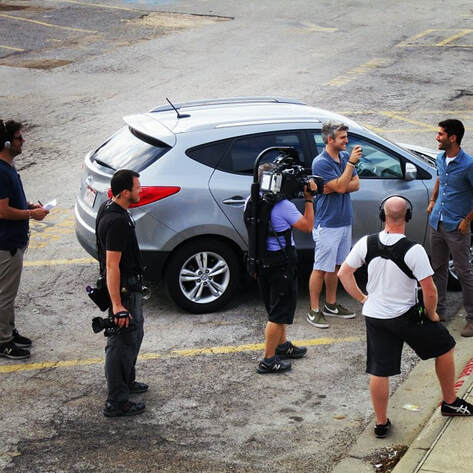
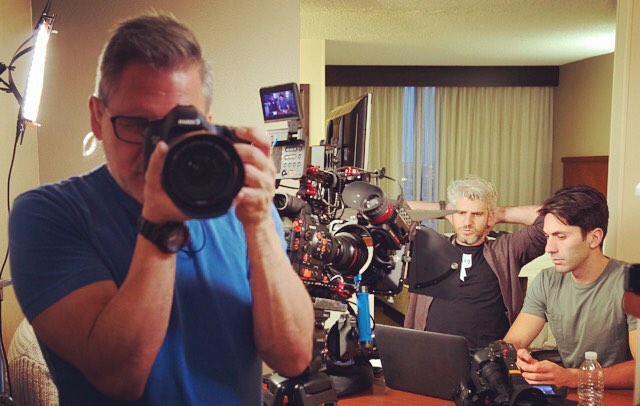
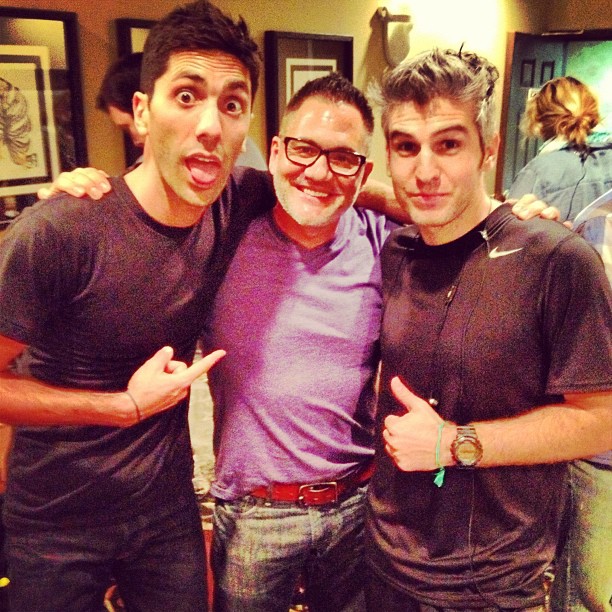
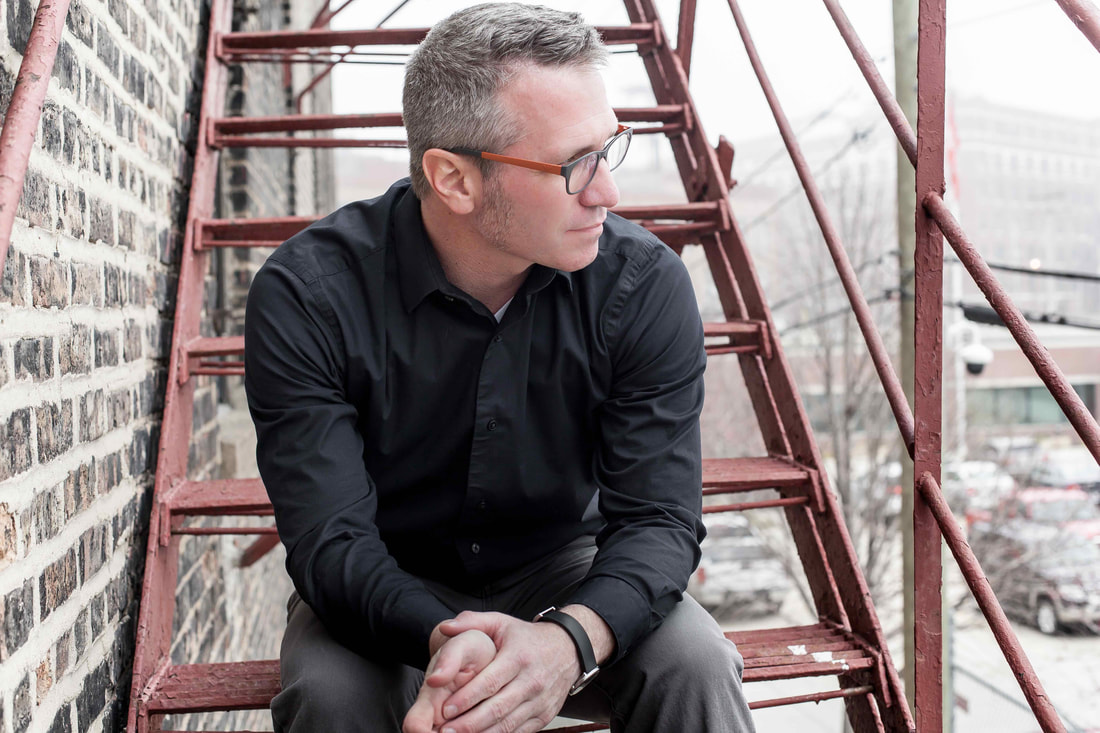
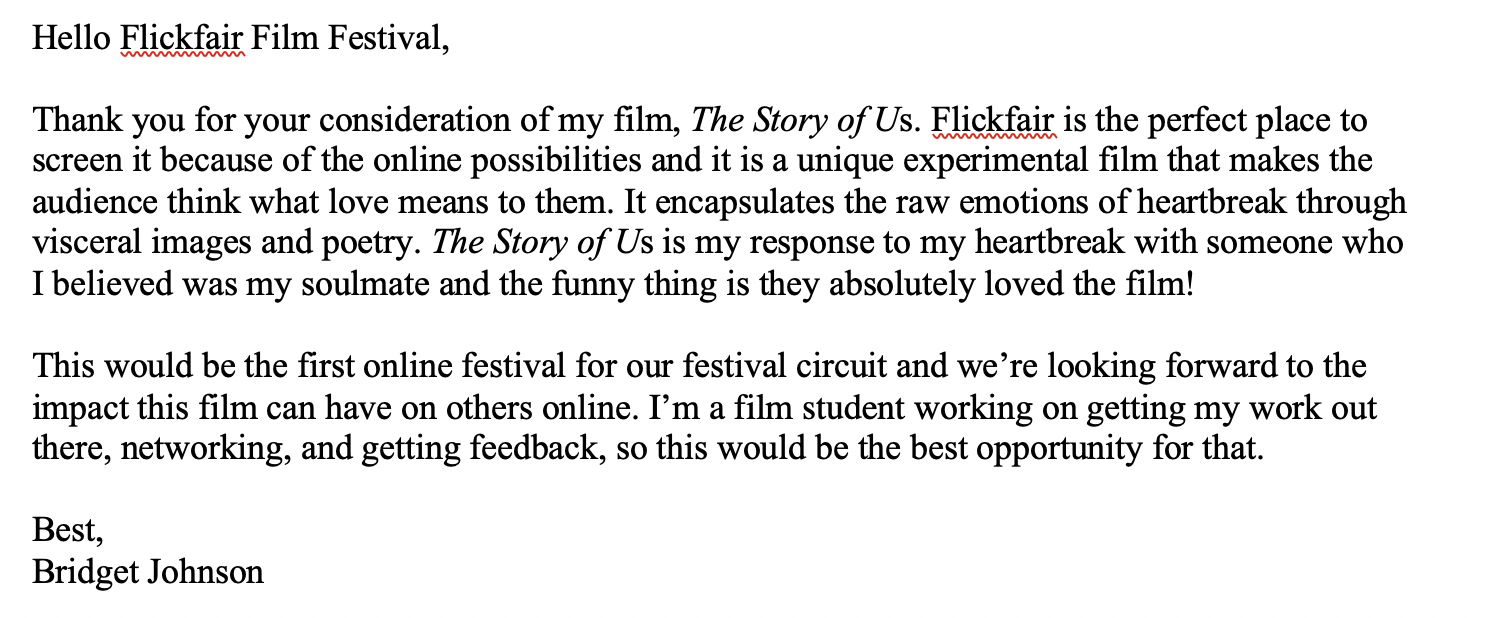
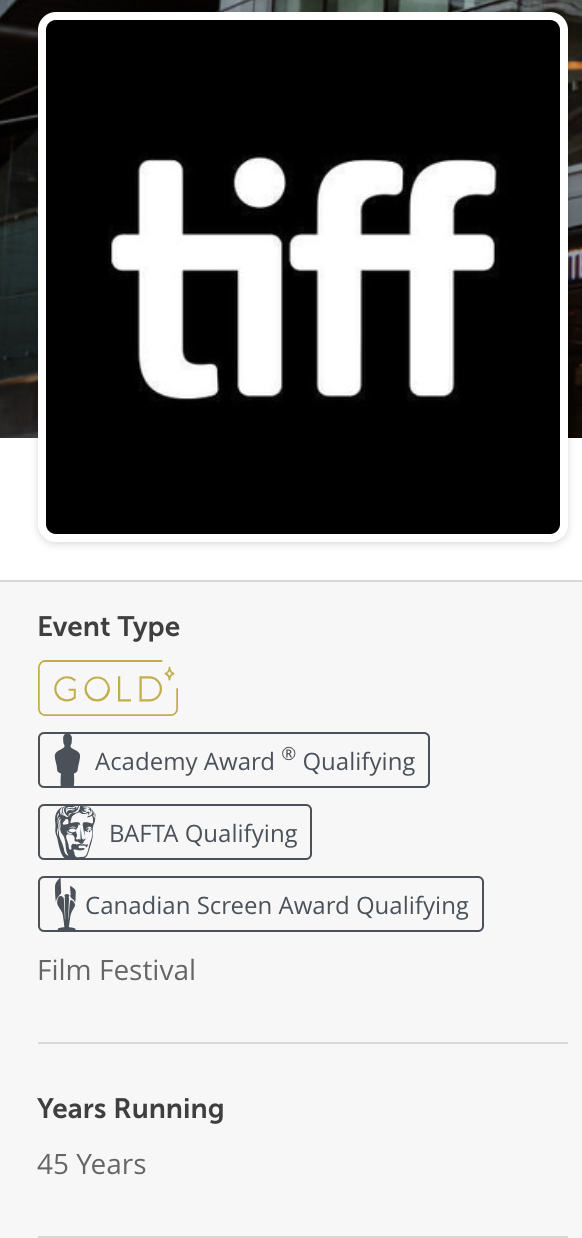
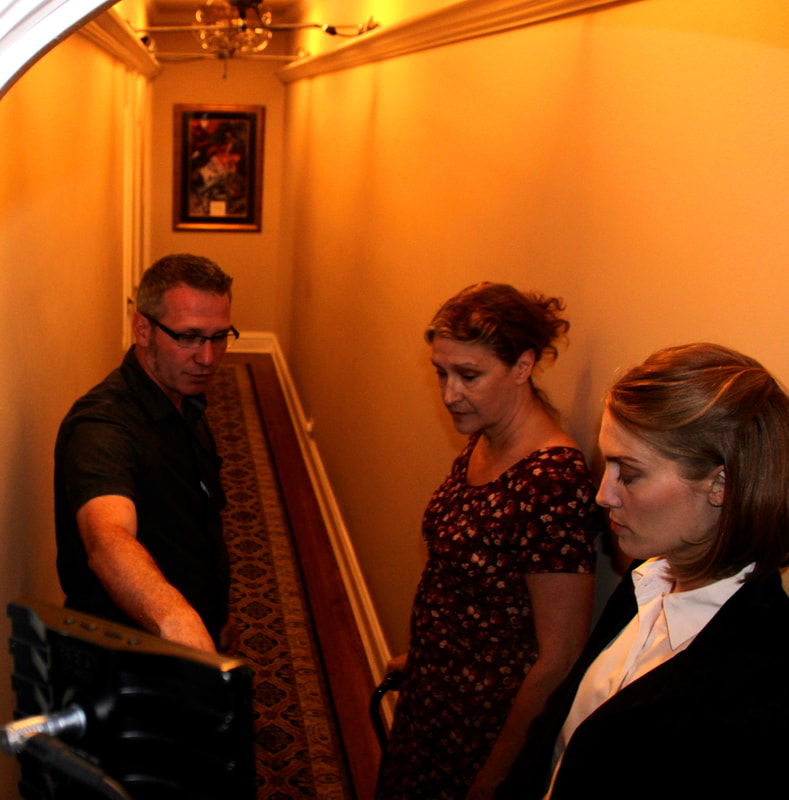
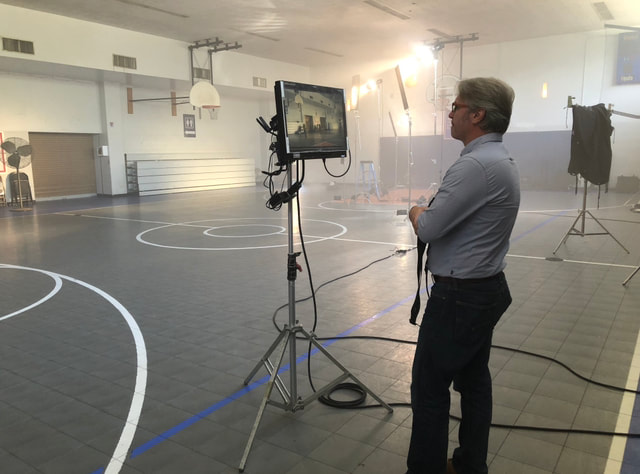
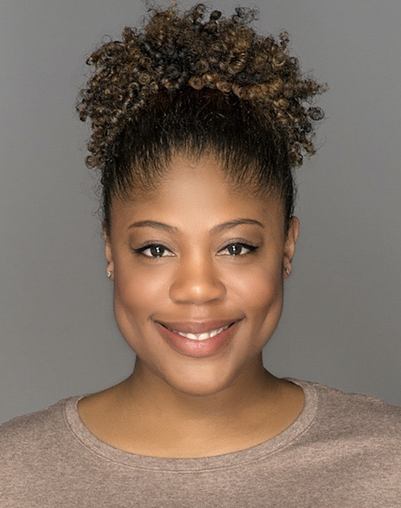
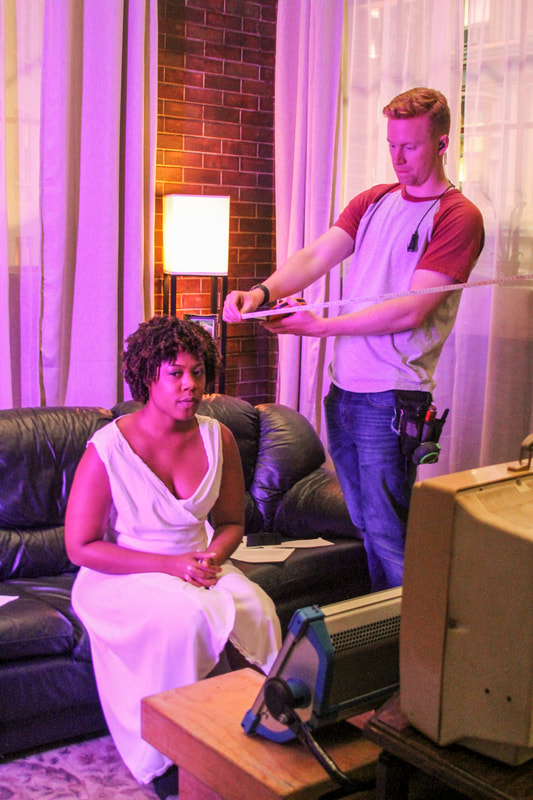
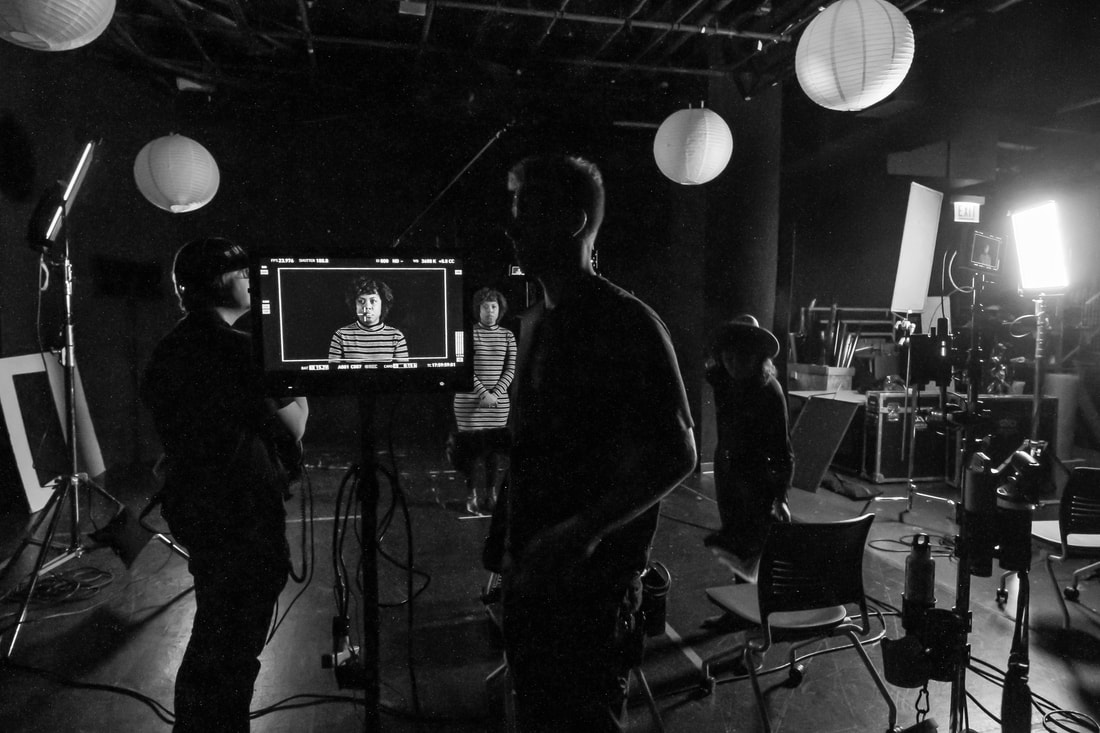
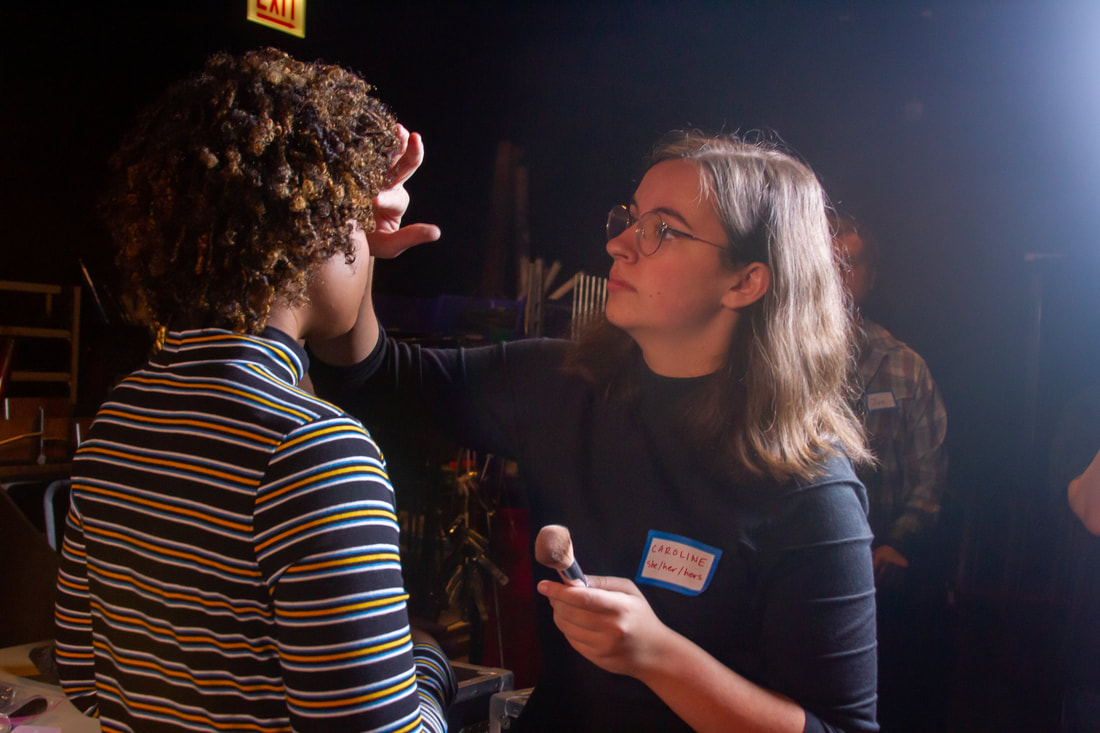
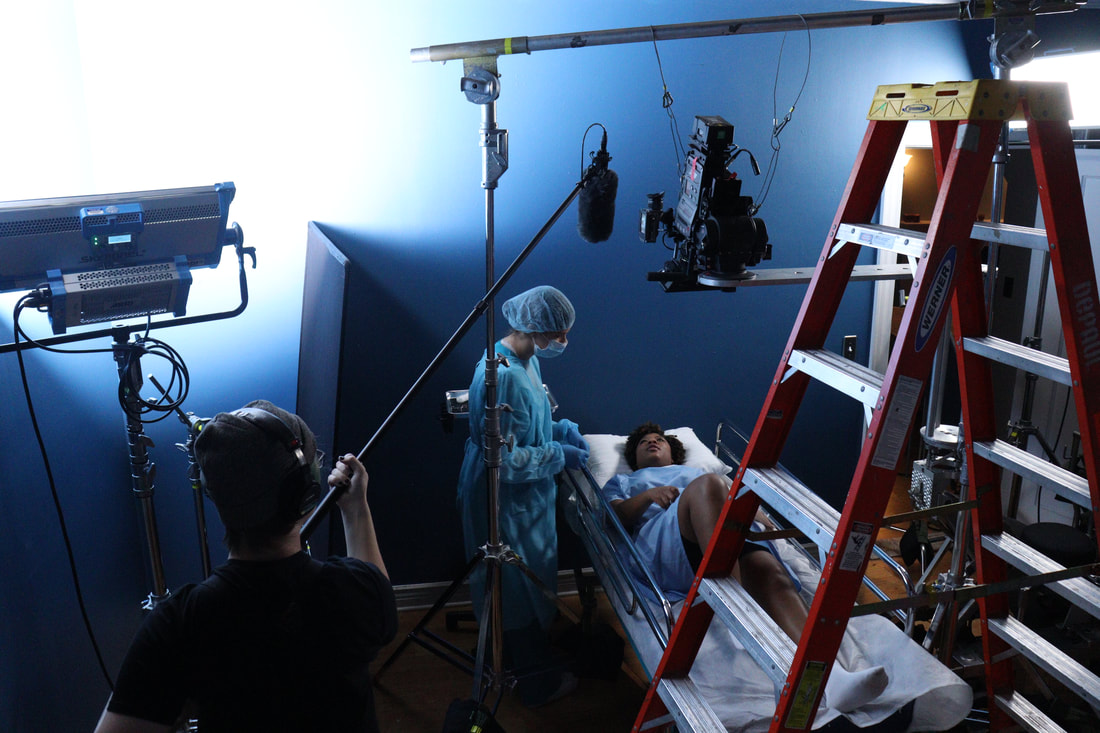
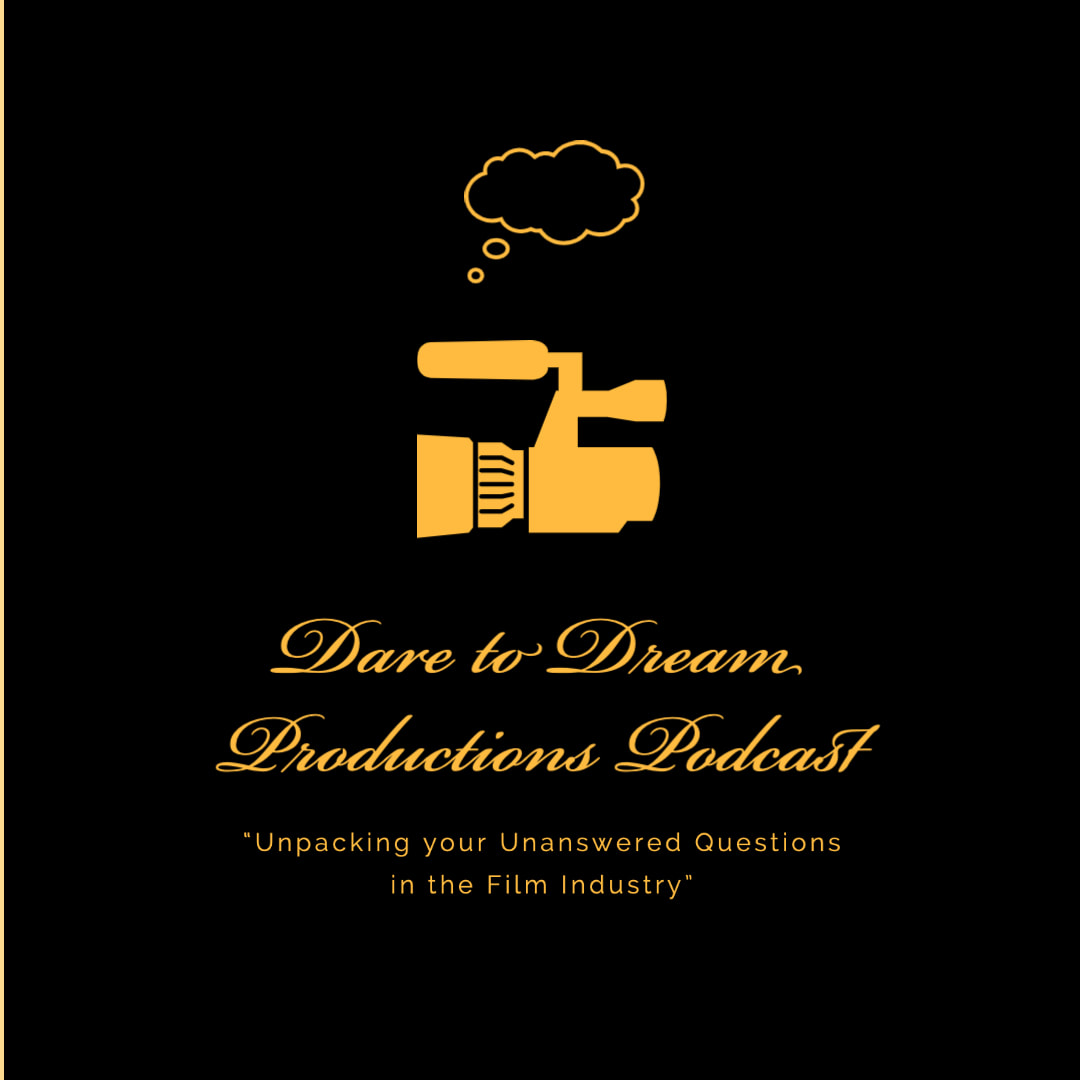
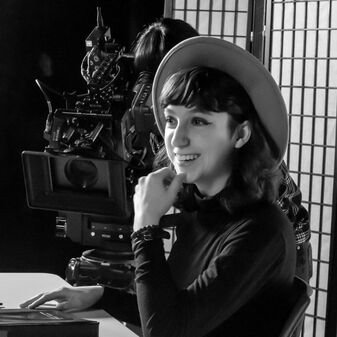
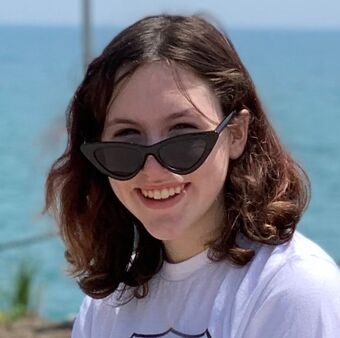
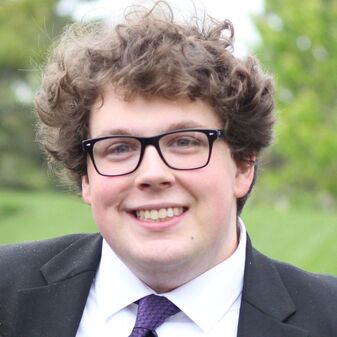
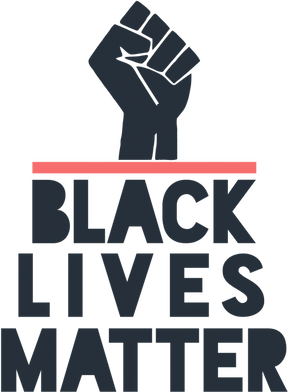
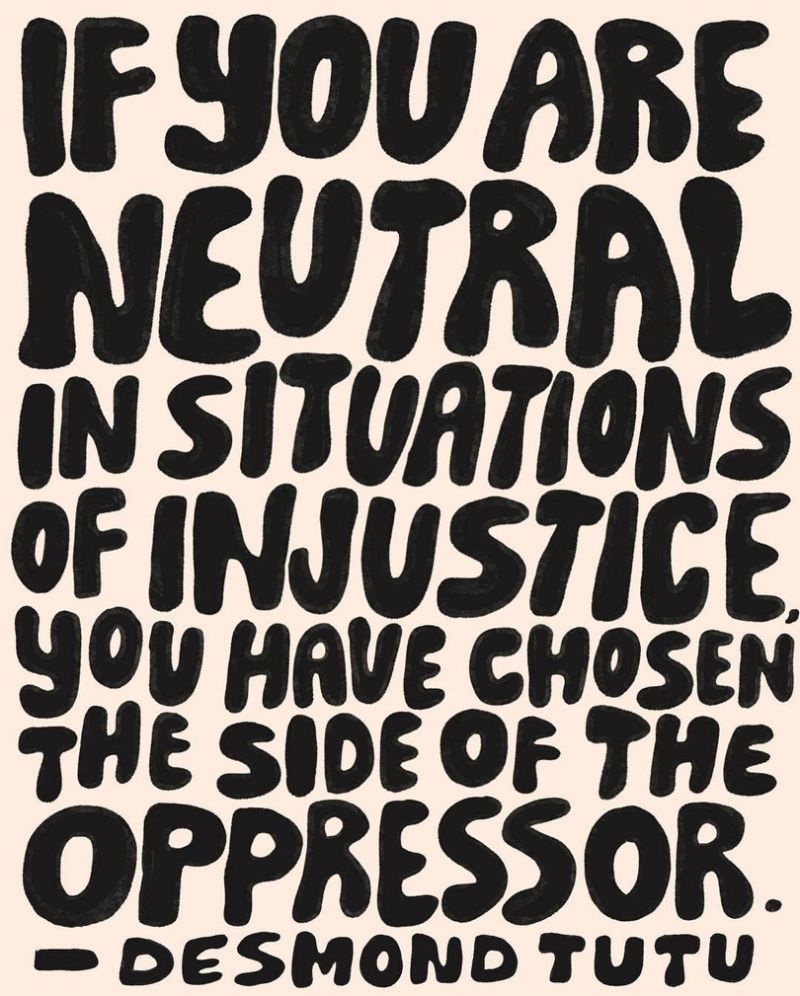
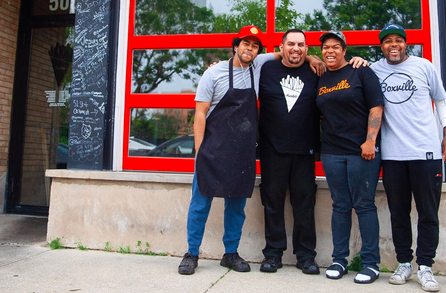
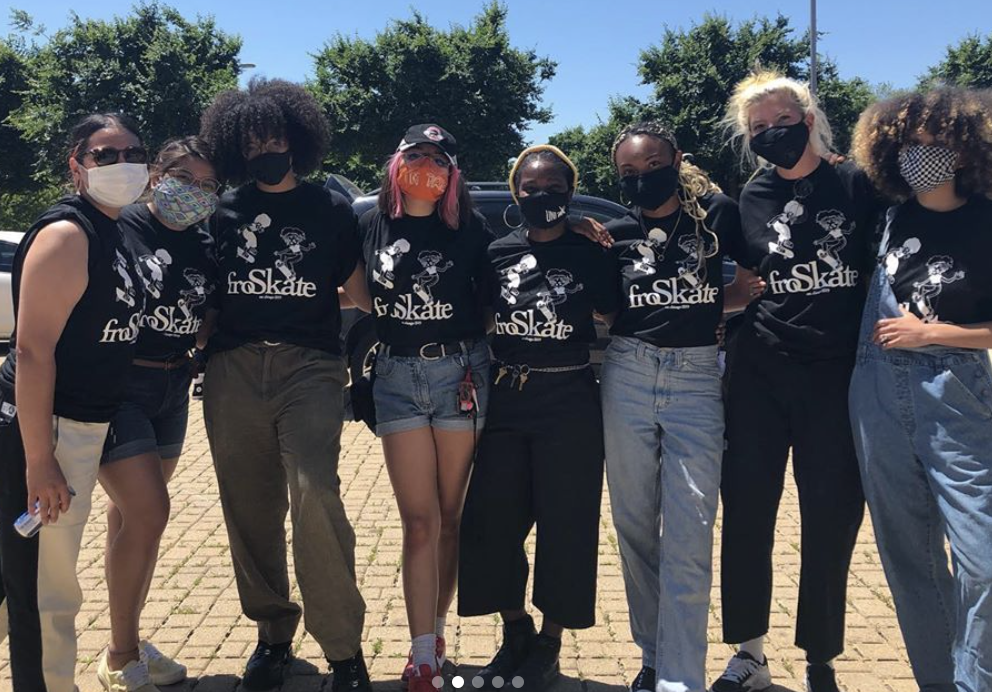
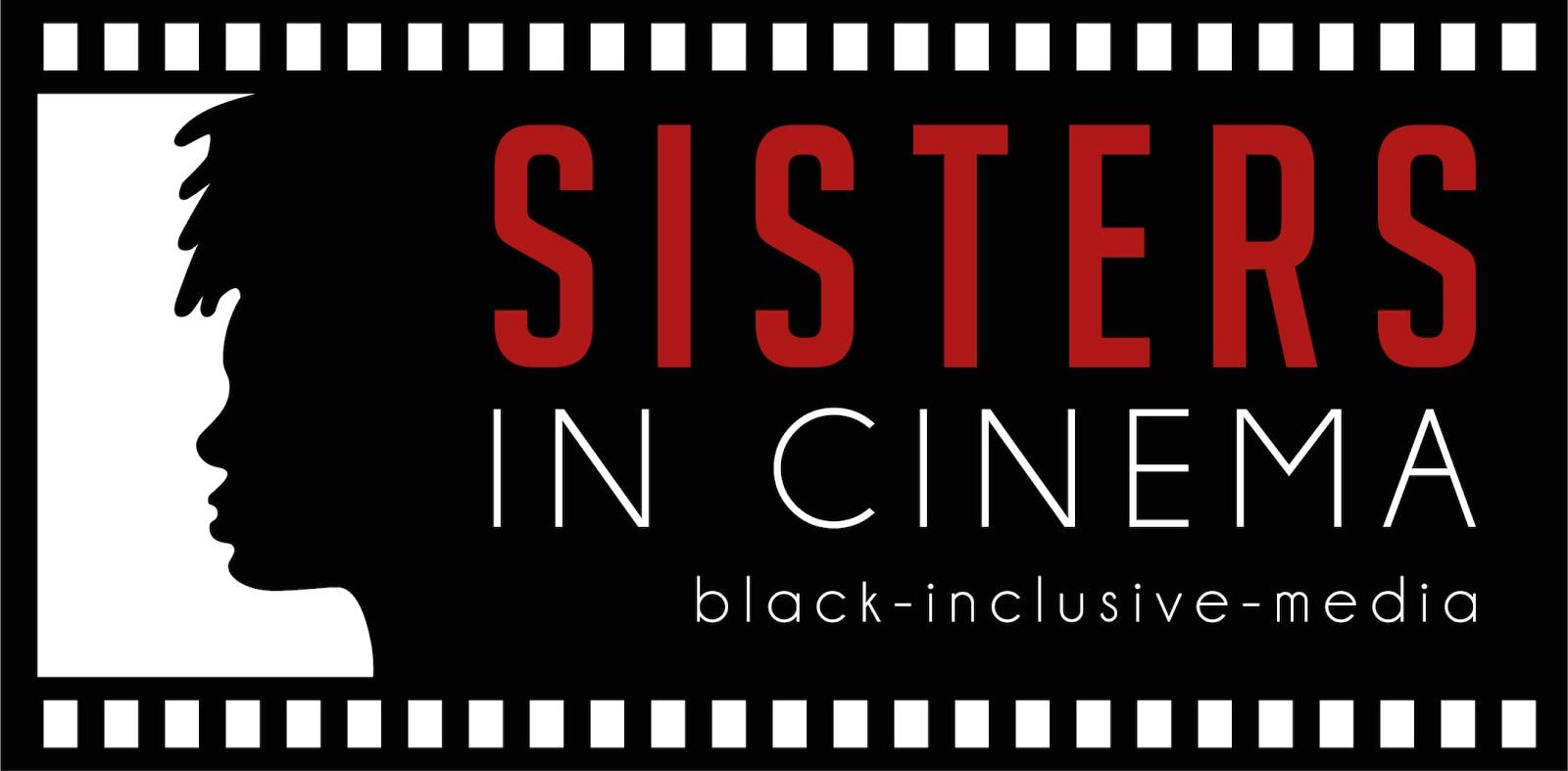
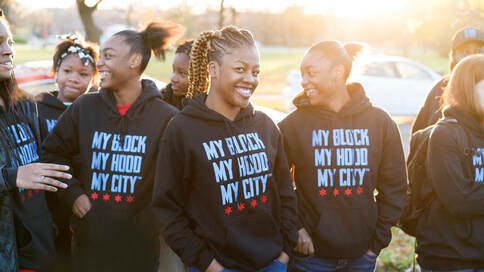
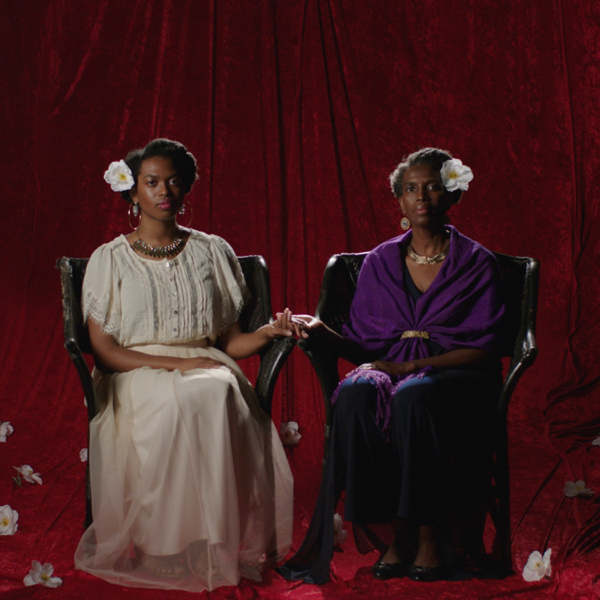
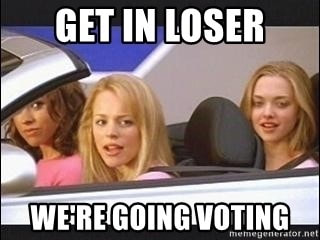
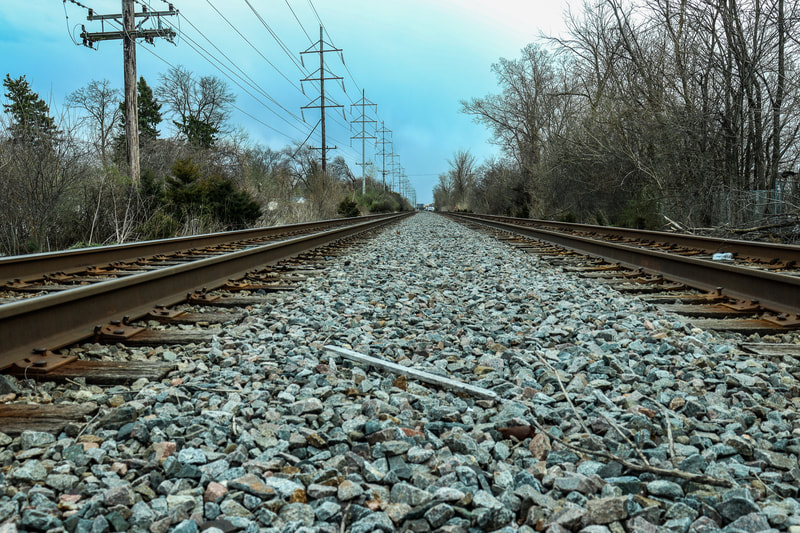
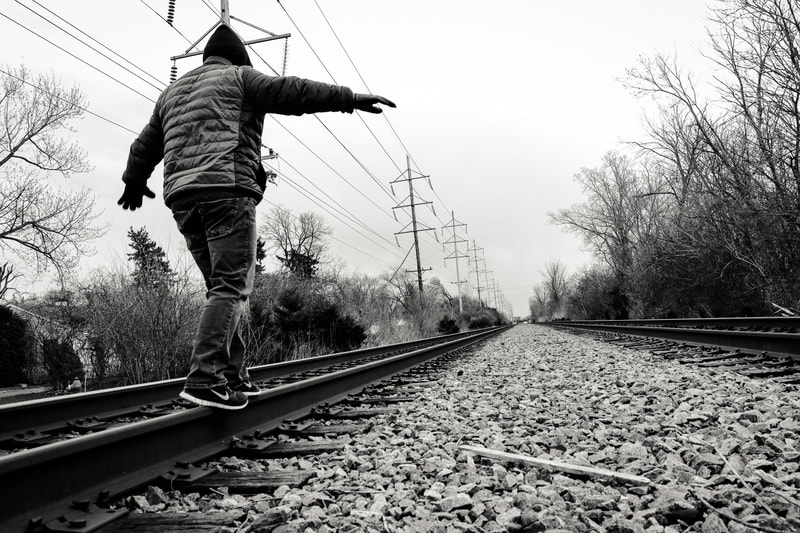
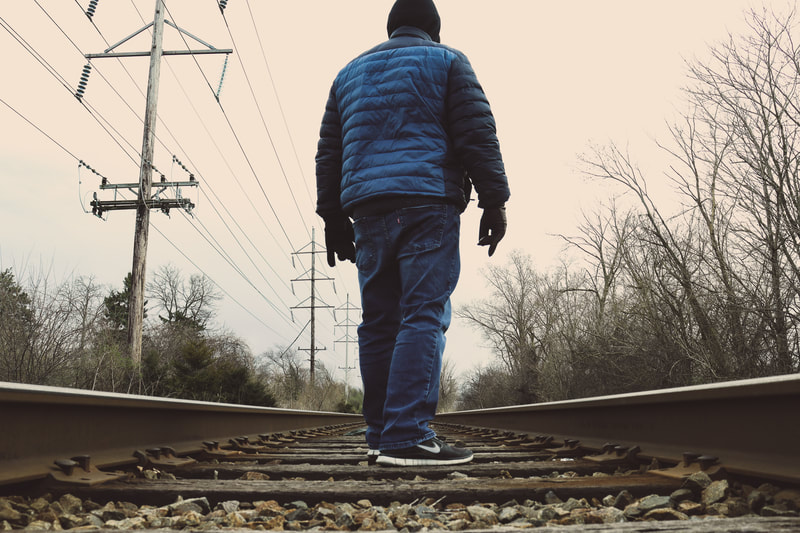
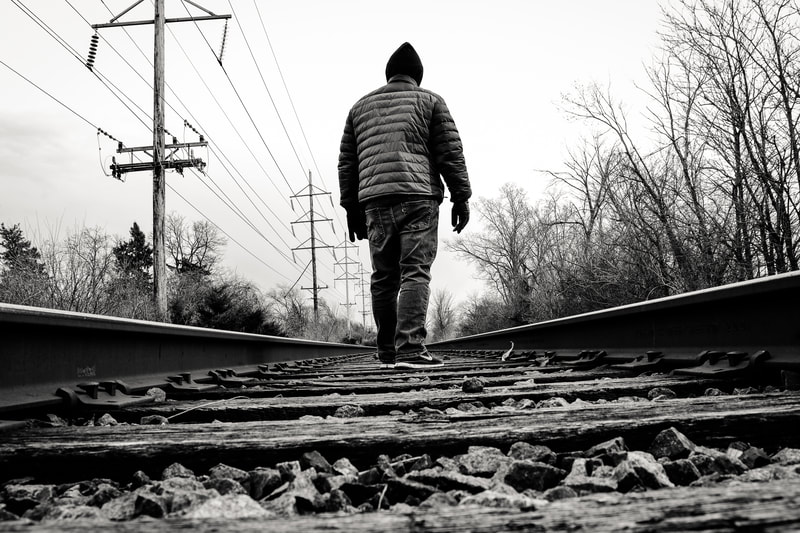
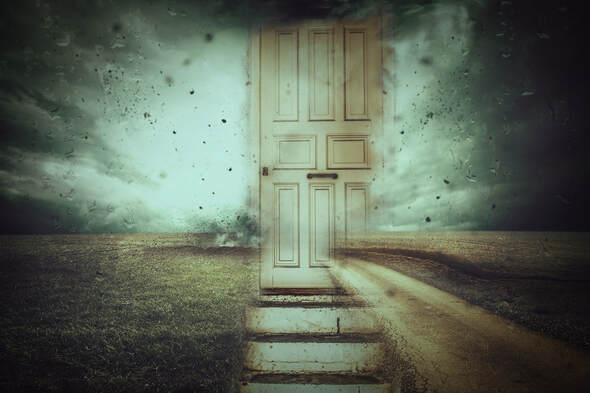
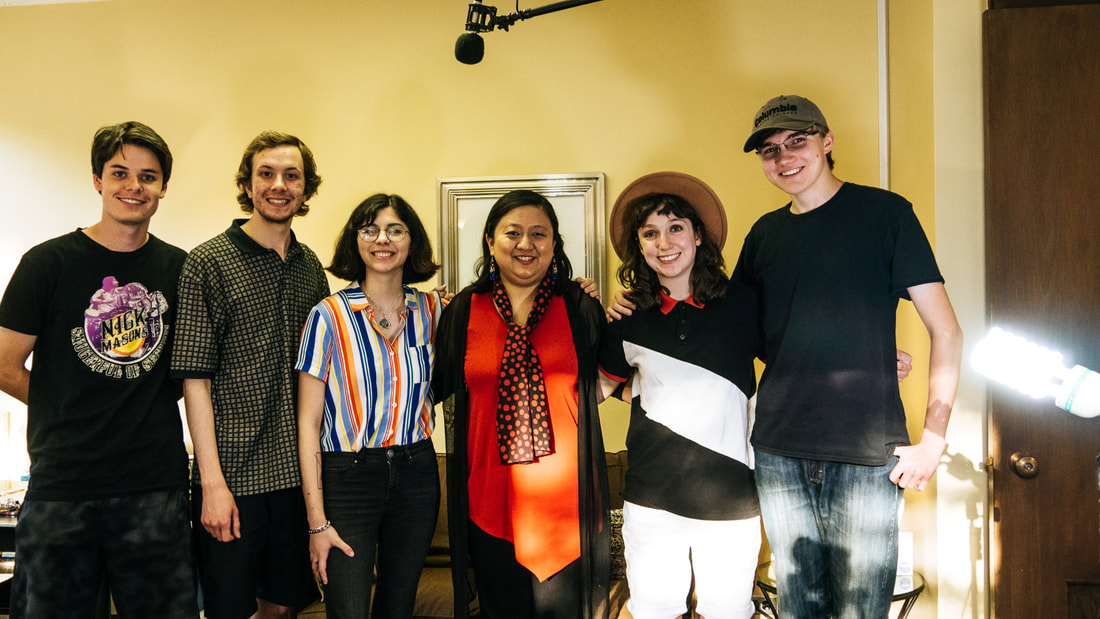
 RSS Feed
RSS Feed